Early Childhood Development
Support your child’s holistic growth with our Early Childhood Development Home Therapy Resources. These tools promote physical, cognitive, social, and emotional development through engaging activities, laying a foundation for lifelong learning and well-being.
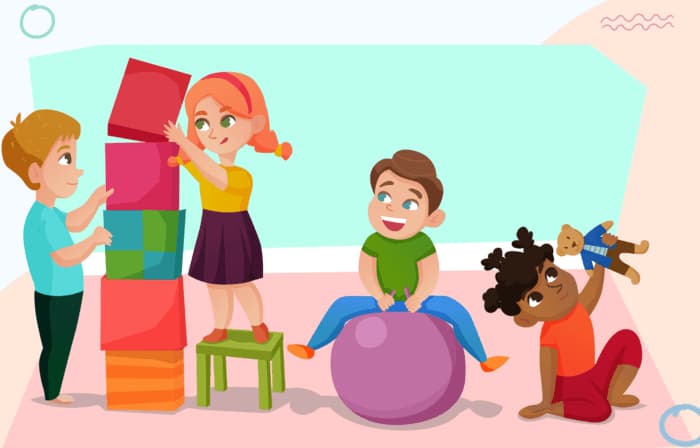
Explore the Best Early Childhood Development Resources for Kids
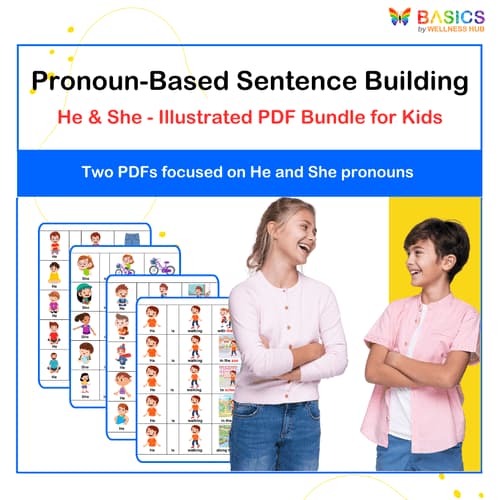
Pronoun-Based Sentence Building: He & She - Illustrated PDF Bundle for Kids
FREE
₹320
100% off
4.9 (48 ratings)
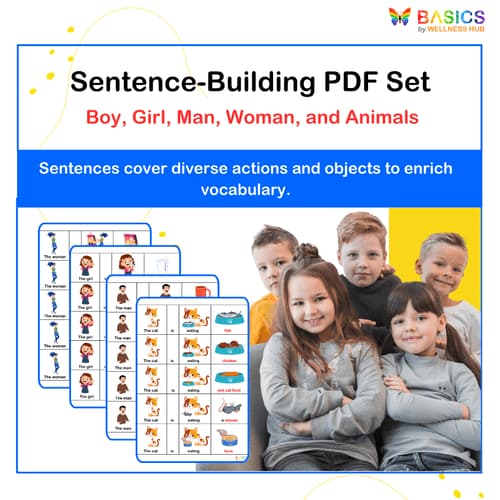
Sentence-Building PDF Set: Boy, Girl, Man, Woman, and Animals
₹ 240.00
₹ 480.00
50% off
4.8 (44 ratings)
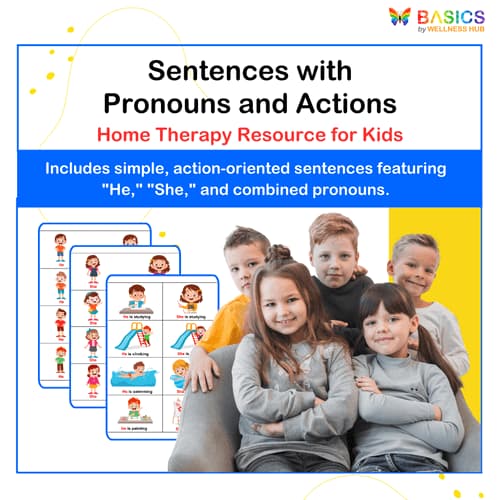
Sentences with Pronouns and Actions Home Therapy Resource for Kids
₹ 160.00
₹ 240.00
33% off
4.7 (58 ratings)
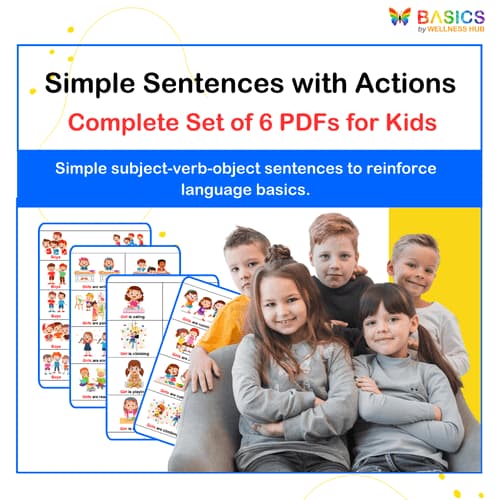
Simple Sentences with Actions: Complete Set of 6 PDFs for Kids
₹ 240.00
₹ 480.00
50% off
4.6 (54 ratings)
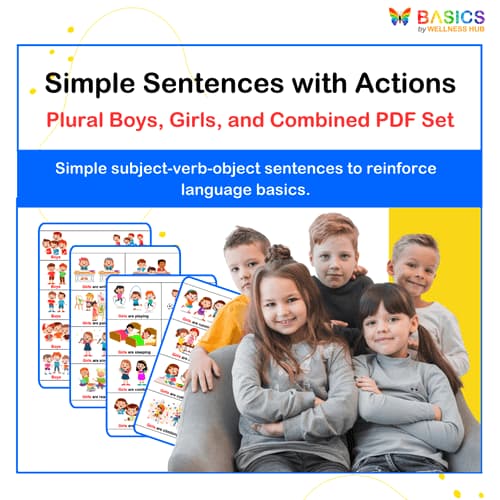
Simple Sentences with Actions: Plural Boys, Girls, and Combined PDF Set
₹ 160.00
₹ 320.00
50% off
4.9 (50 ratings)
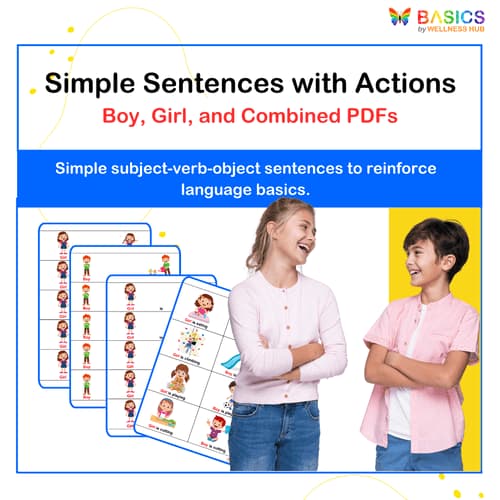
Simple Sentences with Actions: Boy, Girl, and Combined PDFs
₹ 160.00
₹ 320.00
50% off
4.8 (46 ratings)
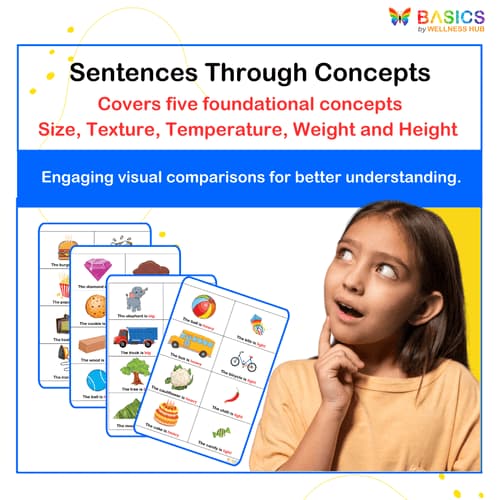
Learning Sentences Through Concepts: Illustrated PDFs for Kids
₹ 160.00
₹ 320.00
50% off
4.7 (42 ratings)
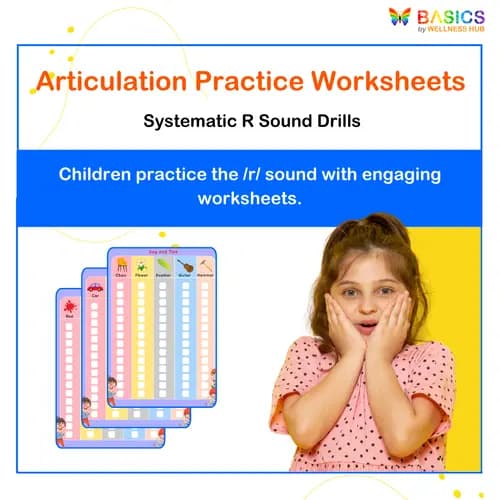
Articulation Drill Worksheets for /r/ Sound – Printable PDF
₹ 80.00
₹ 160.00
50% off
5.0 (56 ratings)
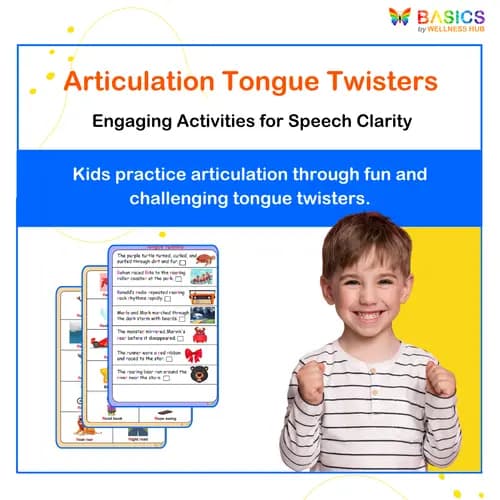
Tongue Twisters for /r/ Sound: Fun Articulation Practice PDF
₹ 80.00
₹ 160.00
50% off
4.8 (48 ratings)
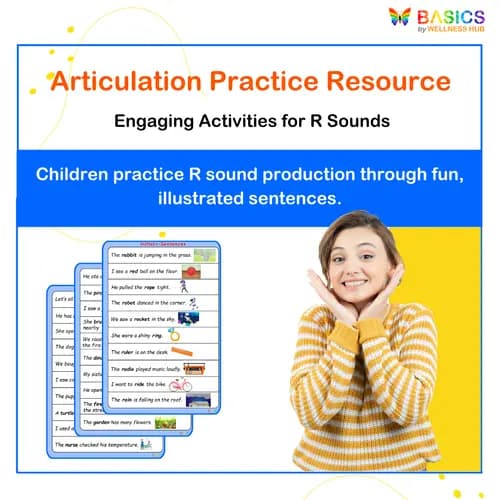
Articulation Practice for /R/ Sound: Engaging Sentences PDF
₹ 80.00
₹ 160.00
50% off
4.9 (52 ratings)
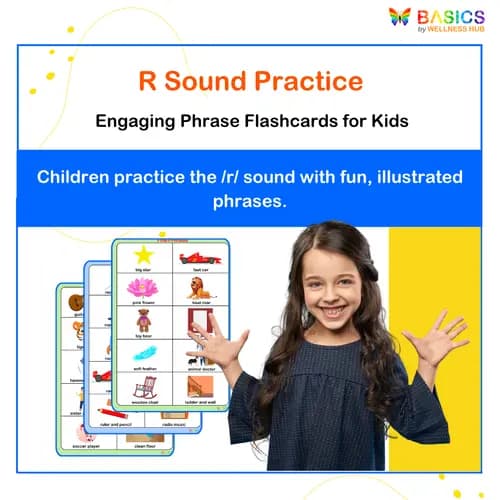
R Sound Phrase Flashcards – Printable PDF for Speech Therapy
₹ 80.00
₹ 160.00
50% off
5.0 (56 ratings)
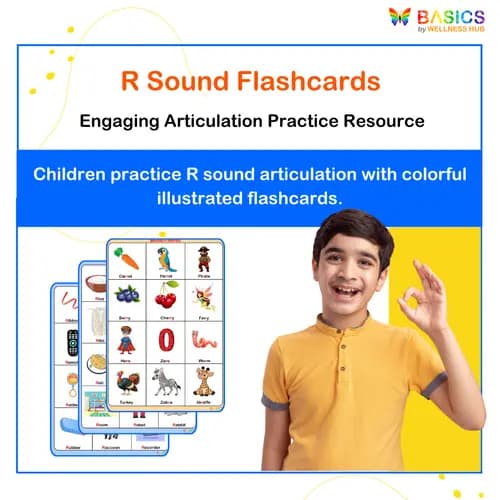
R Sound Flashcards: Articulation Practice for Kids
₹ 80.00
₹ 160.00
50% off
4.9 (52 ratings)
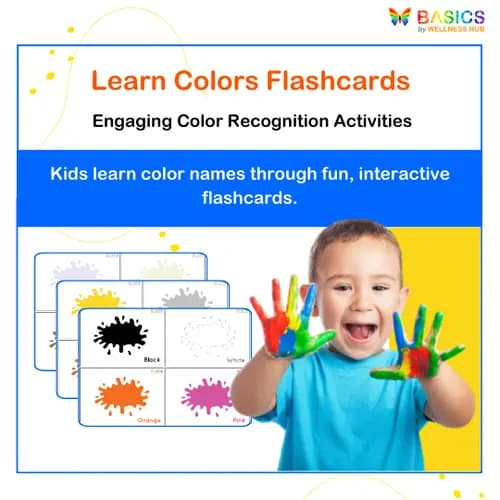
Learn Colors with Flashcards – Free Printable PDF for Kids
FREE
₹160
100% off
4.8 (50 ratings)
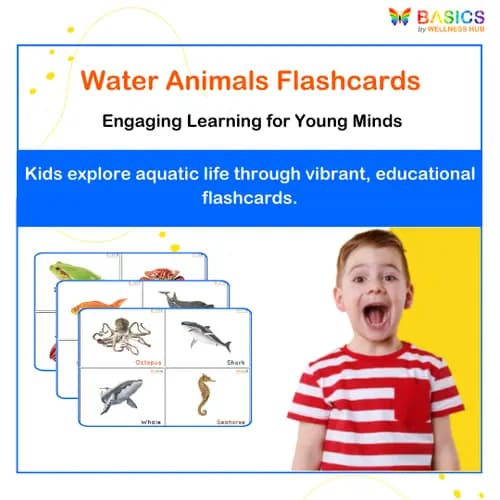
Water Animals Flashcards for Kids – Free Printable PDF
FREE
₹160
100% off
4.7 (46 ratings)
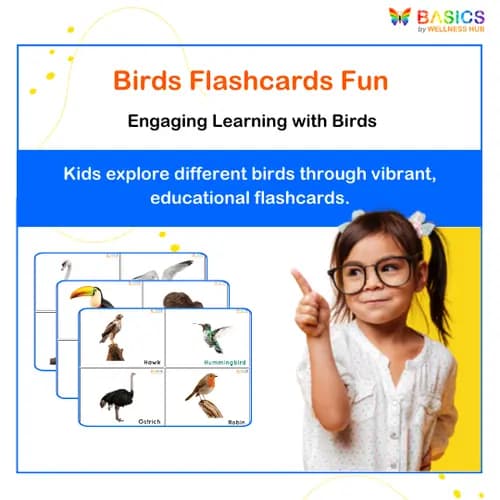
Birds Flashcards for Kids – Free Printable PDF
FREE
₹160
100% off
4.6 (42 ratings)
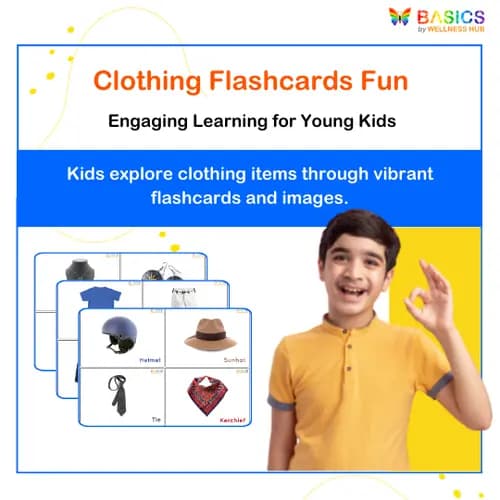
Clothing and Accessories Flashcards for Kids – Printable PDF
₹ 80.00
₹ 160.00
50% off
4.9 (58 ratings)
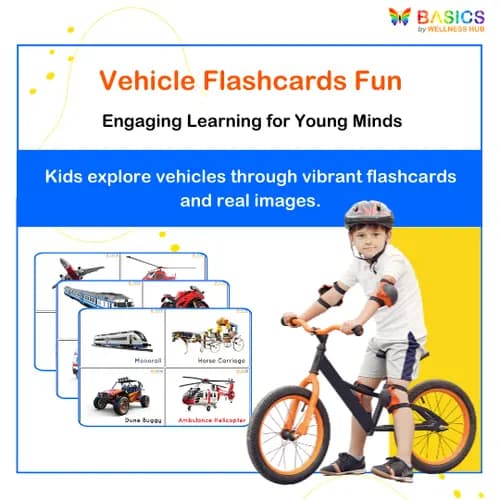
Vehicles Flashcards for Kids – Printable PDF
₹ 80.00
₹ 160.00
50% off
4.8 (54 ratings)
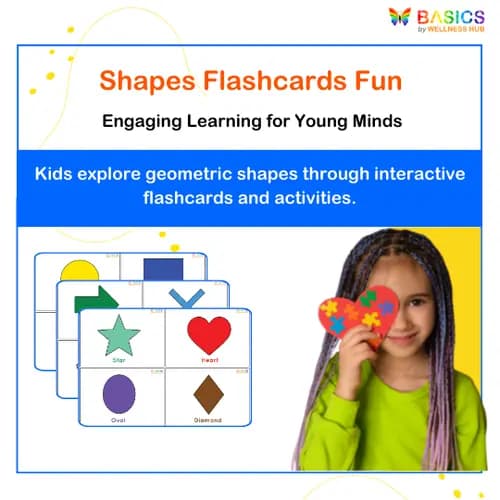
Shapes Flashcards for Kids – Free Printable PDF
FREE
₹160
100% off
4.7 (50 ratings)
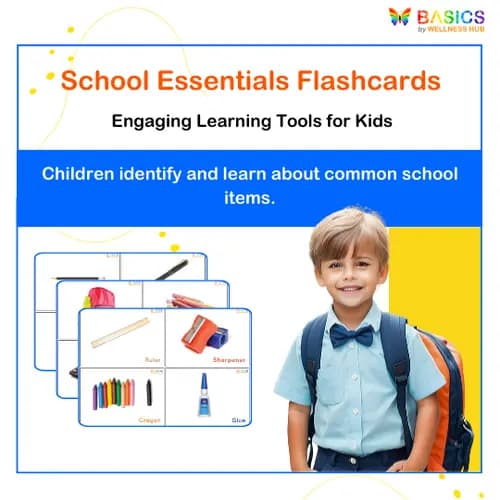
School Essentials Flashcards for Kids – Printable PDF
₹ 80.00
₹ 160.00
50% off
4.6 (46 ratings)
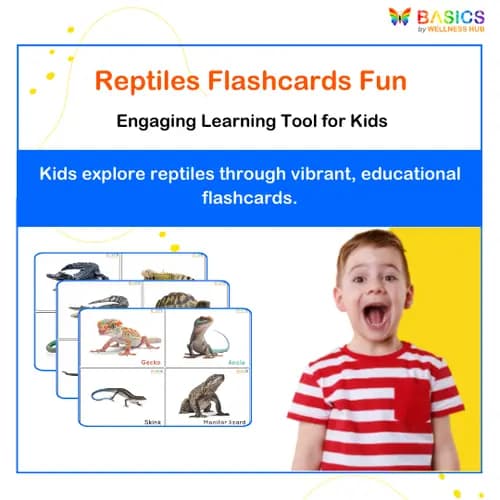
Reptiles Flashcards for Kids – Free Printable PDF
FREE
₹160
100% off
4.9 (42 ratings)
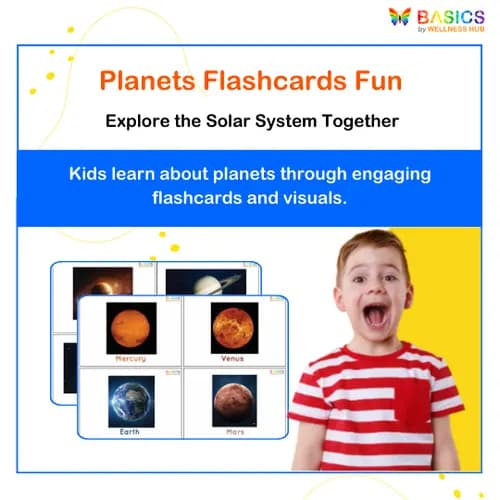
Planets Flashcards for Kids – Free Solar System Learning PDF
FREE
₹160
100% off
4.8 (60 ratings)
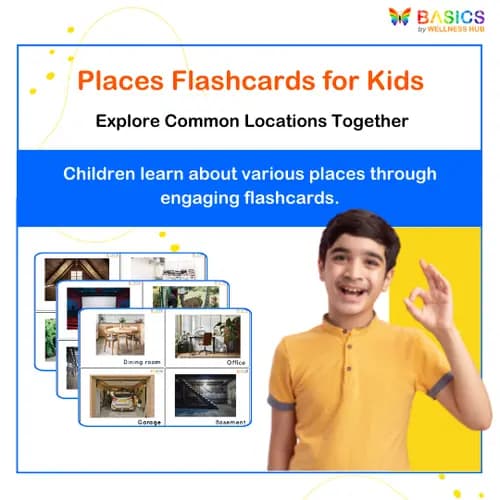
Places Flashcards for Kids – Explore and Learn Printable PDF
₹ 80.00
₹ 160.00
50% off
4.7 (56 ratings)
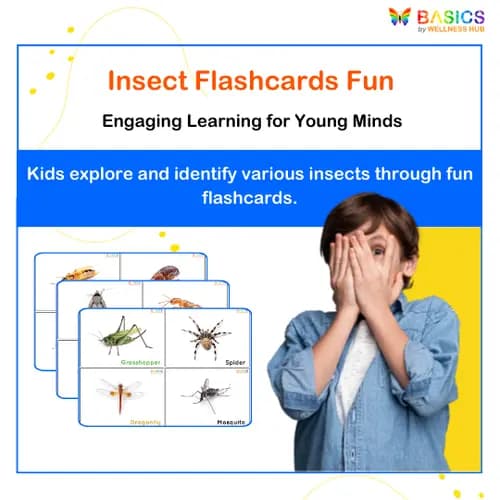
Insects Flashcards for Kids – Free Printable PDF
FREE
₹160
100% off
4.6 (52 ratings)
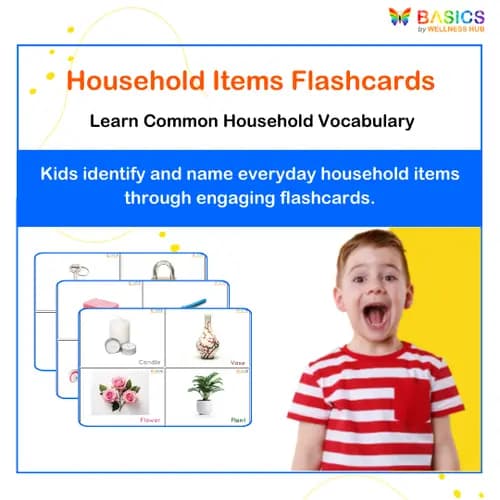
Household Items Flashcards for Kids – Printable PDF
FREE
₹160
100% off
4.9 (48 ratings)
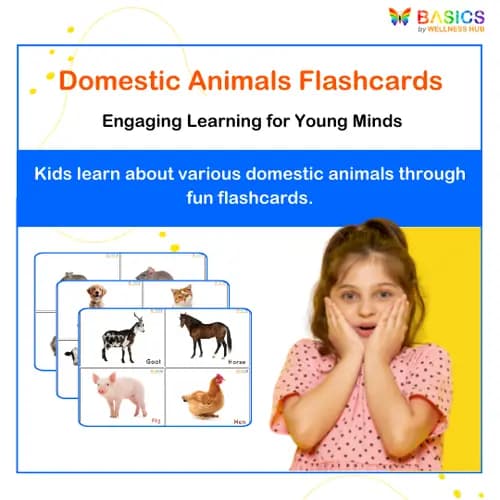
Domestic Animals Flashcards for Kids – Printable PDF
₹ 80.00
₹ 160.00
50% off
4.8 (44 ratings)
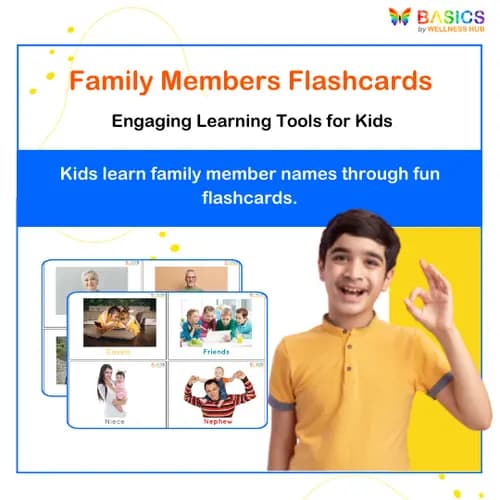
Family Members Flashcards for Kids – Free Printable PDF
FREE
₹160
100% off
4.7 (58 ratings)
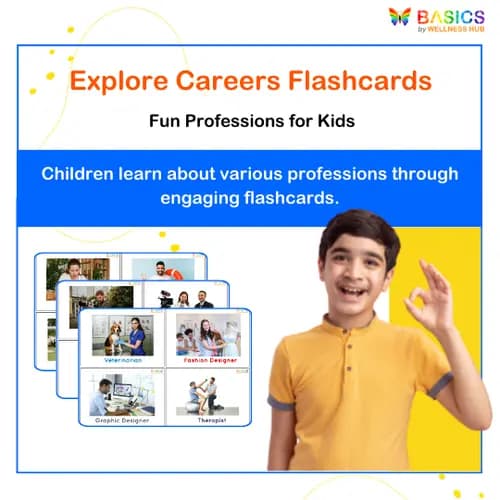
Professions Flashcards for Kids – Explore Careers Printable PDF
₹ 80.00
₹ 160.00
50% off
4.6 (54 ratings)
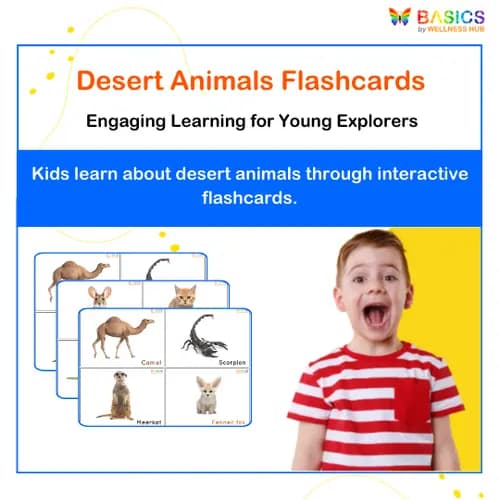
Desert Animals Flashcards for Kids – Free Printable PDF
FREE
₹160
100% off
4.9 (50 ratings)
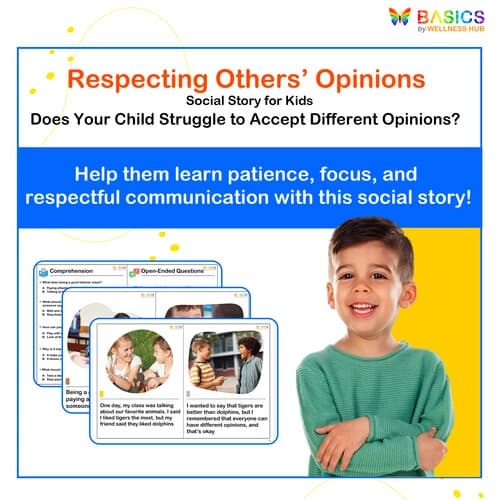
Respecting Others’ Opinions – Free Social Story for Kids
₹ 80.00
₹ 160.00
50% off
4.8 (46 ratings)
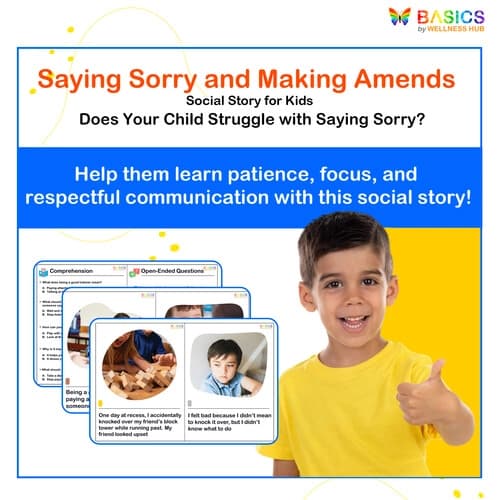
Saying Sorry and Making Amends – Social Story for Kids
₹ 80.00
₹ 160.00
50% off
5.0 (42 ratings)
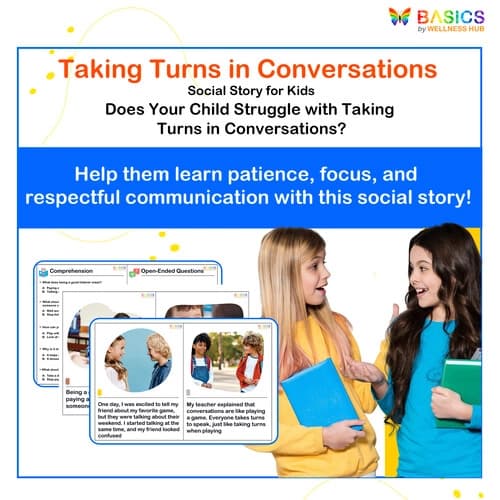
Taking Turns in Conversations – Social Story for Kids
₹ 80.00
₹ 160.00
50% off
4.9 (60 ratings)
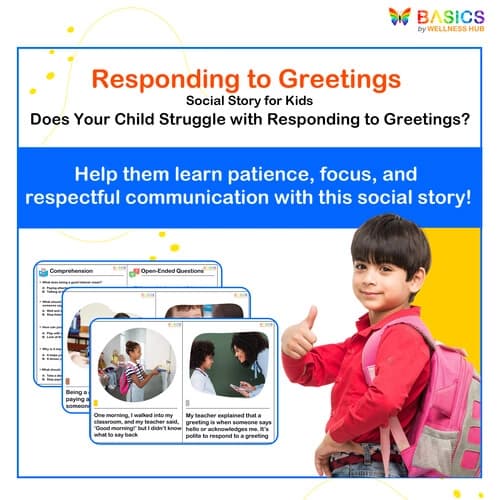
Responding to Greetings – Social Story for Kids
₹ 80.00
₹ 160.00
50% off
4.8 (56 ratings)
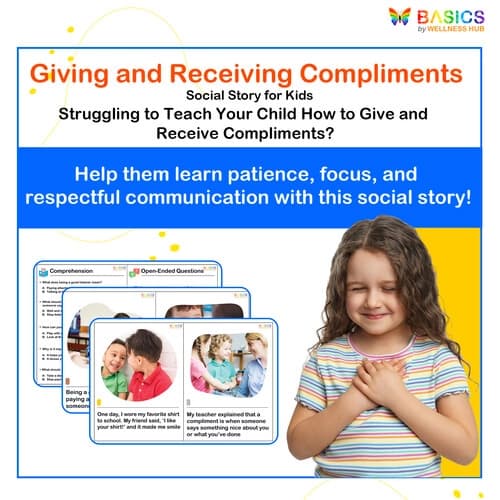
Giving and Receiving Compliments – Social Story for Kids
₹ 80.00
₹ 160.00
50% off
5.0 (52 ratings)
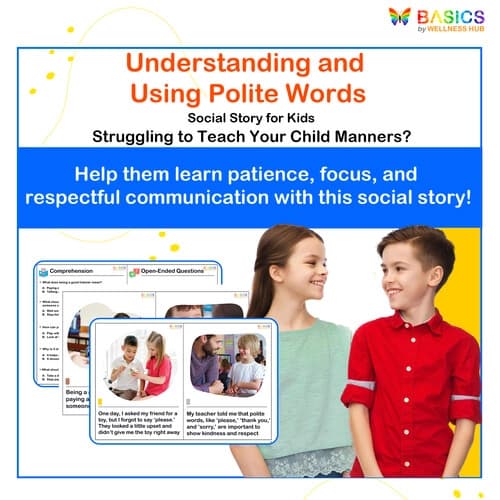
Understanding and Using Polite Words – Social Story for Kids
₹ 80.00
₹ 160.00
50% off
4.9 (48 ratings)
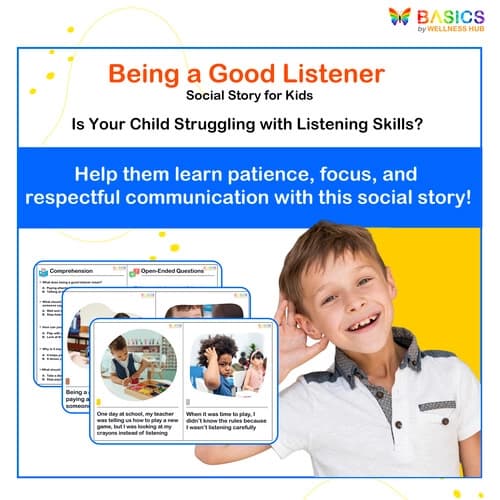
Being a Good Listener – Social Story for Kids’ Communication Skills
₹ 80.00
₹ 160.00
50% off
4.8 (44 ratings)
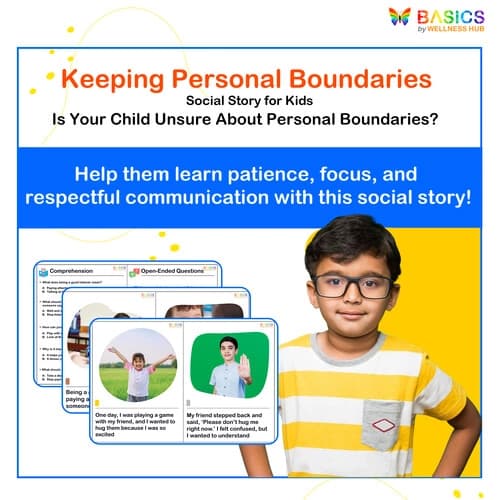
Keeping Personal Boundaries – Free Social Story for Kids’ Personal Space
FREE
₹160
100% off
5.0 (58 ratings)
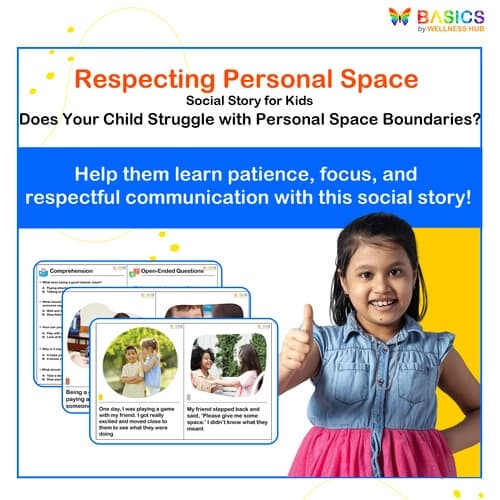
Respecting Personal Space – Social Story for Kids’ Personal Boundaries
₹ 80.00
₹ 160.00
50% off
4.9 (54 ratings)
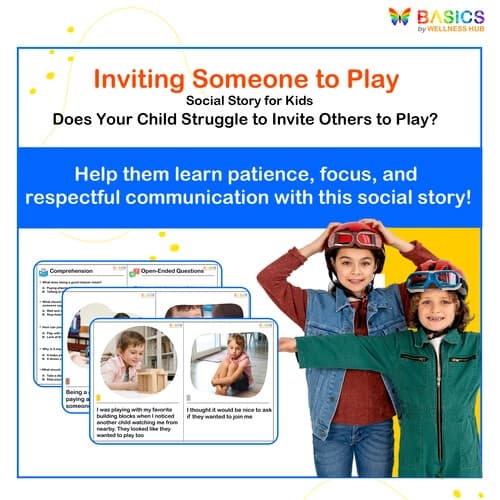
Inviting Someone to Play – Social Story for Kids’ Social Skills
₹ 80.00
₹ 160.00
50% off
4.8 (50 ratings)
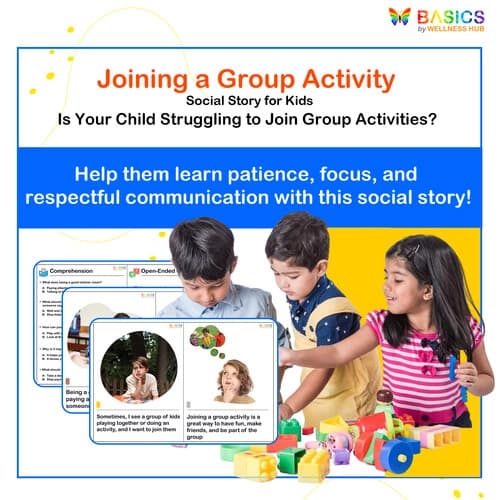
Joining a Group Activity – Social Story for Kids’ Social Confidence
₹ 80.00
₹ 160.00
50% off
5.0 (46 ratings)
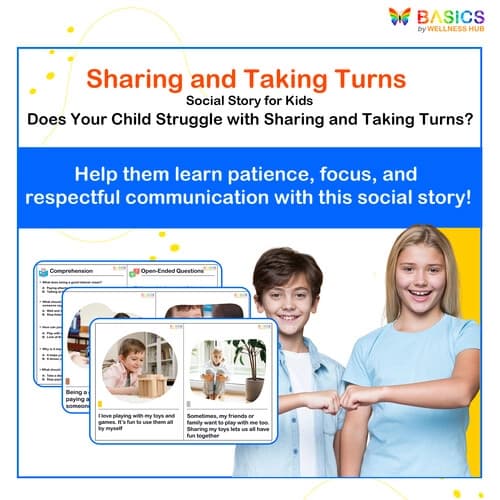
Sharing and Taking Turns – Social Story for Kids’ Social Skills
₹ 80.00
₹ 160.00
50% off
4.9 (42 ratings)
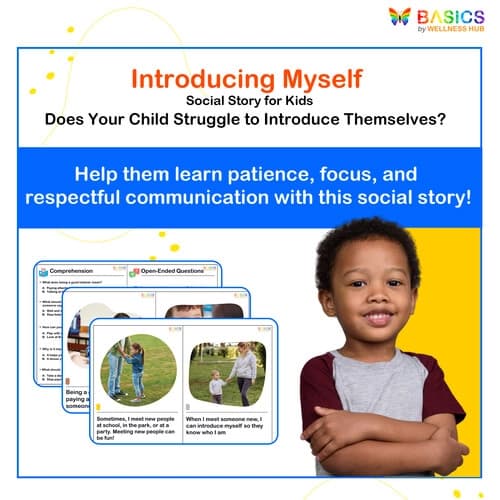
Introducing Myself – Free Social Story for Kids’ Communication Skills
₹ 80.00
₹ 160.00
50% off
4.8 (60 ratings)
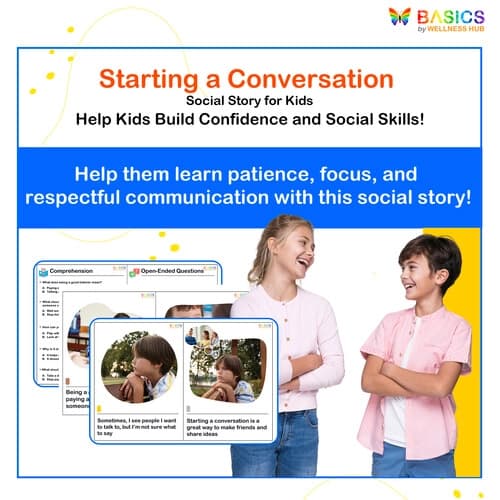
Starting Conversations – Social Story for Kids' Communication Skills
₹ 80.00
₹ 160.00
50% off
5.0 (56 ratings)
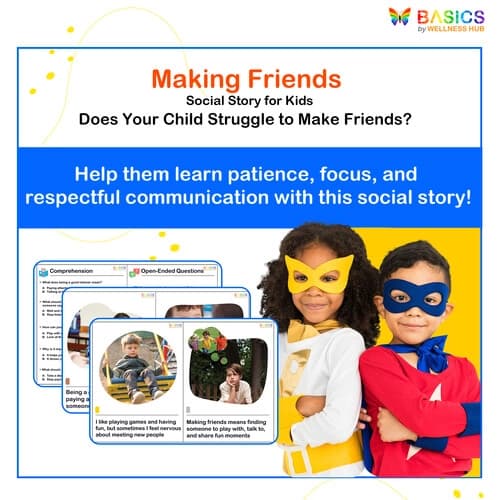
Making Friends – Social Story for Building Social Skills
₹ 80.00
₹ 160.00
50% off
4.9 (52 ratings)
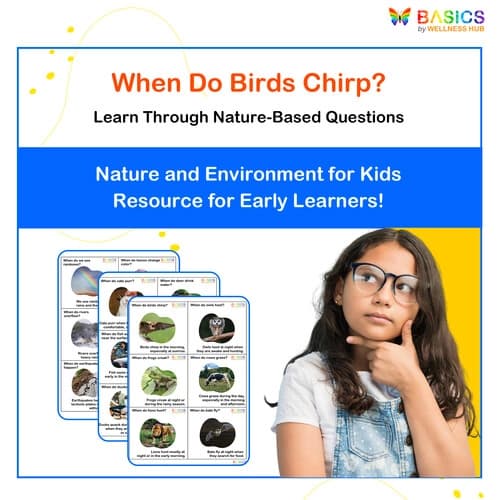
When Questions Flashcards – Nature and Environment for Kids (Printable PDF)
₹ 80.00
₹ 160.00
50% off
4.8 (48 ratings)
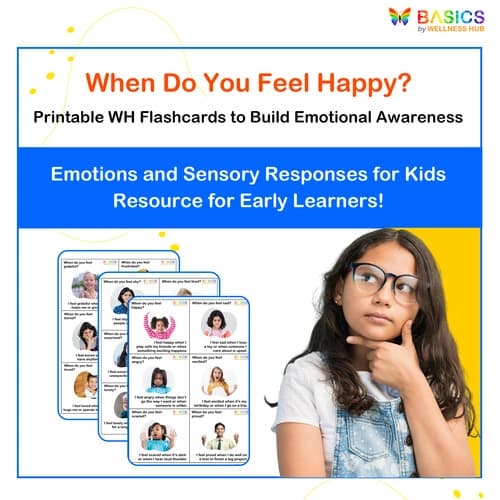
When Questions Flashcards – Emotions and Sensory Responses for Kids (Printable PDF)
₹ 80.00
₹ 160.00
50% off
5.0 (44 ratings)
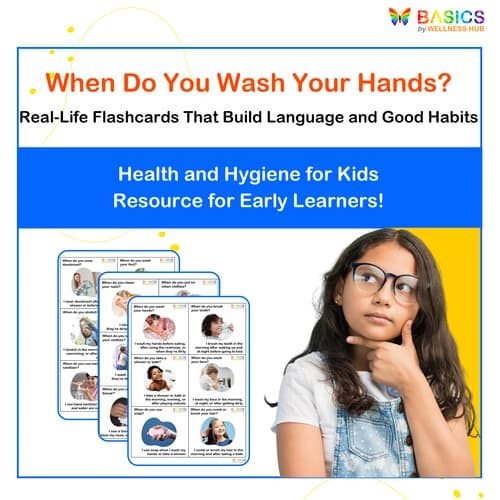
When Questions Flashcards – Health and Hygiene for Kids (Printable PDF)
₹ 80.00
₹ 160.00
50% off
4.9 (58 ratings)
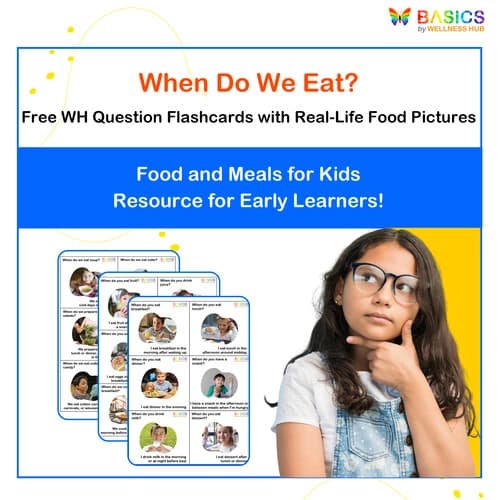
When Questions Flashcards – Food and Meals for Kids (Free Printable PDF)
FREE
₹160
100% off
4.8 (54 ratings)
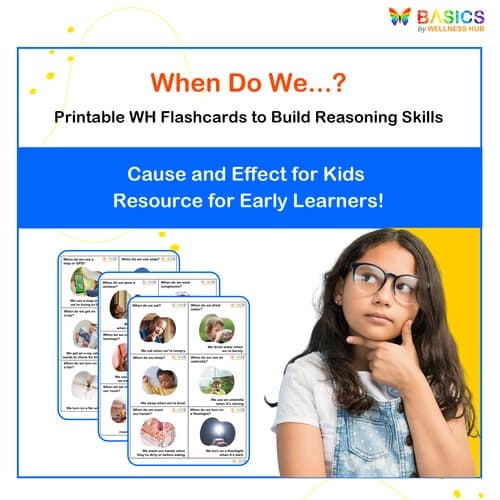
When Questions Flashcards – Cause and Effect for Kids (Printable PDF)
₹ 80.00
₹ 160.00
50% off
5.0 (50 ratings)
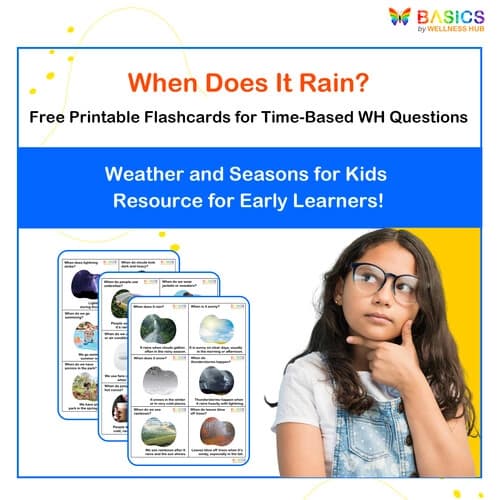
When Questions Flashcards – Weather and Seasons for Kids (Free Printable PDF)
FREE
₹160
100% off
4.9 (46 ratings)
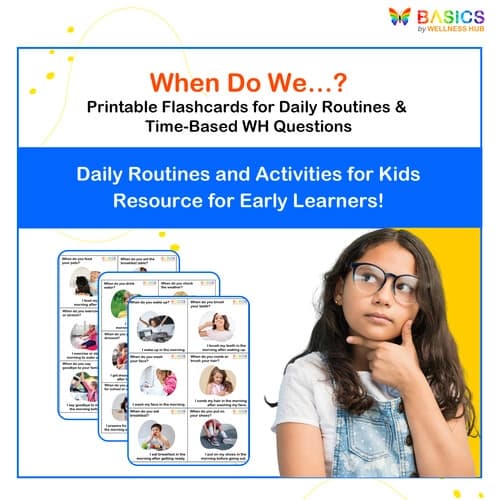
When Questions Flashcards – Daily Routines and Activities for Kids (Printable PDF)
₹ 80.00
₹ 160.00
50% off
4.8 (42 ratings)
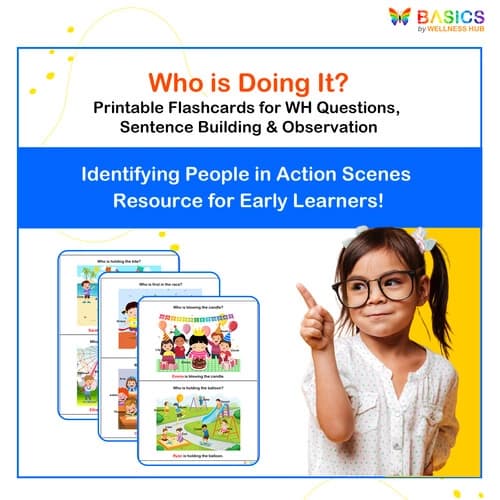
Who Questions Flashcards – Identifying People in Action Scenes (Printable PDF)
₹ 80.00
₹ 160.00
50% off
5.0 (60 ratings)
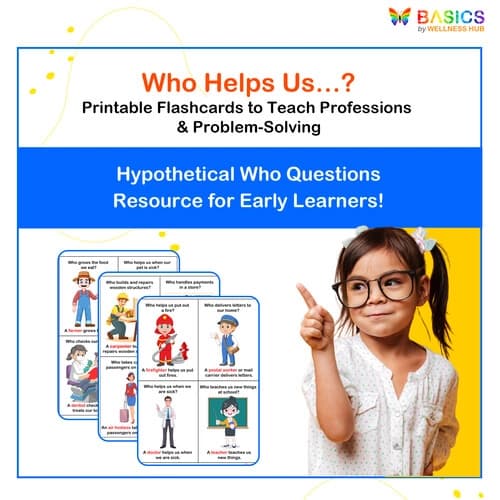
Hypothetical Who Questions – Professions Flashcards for Kids (Printable PDF)
₹ 80.00
₹ 160.00
50% off
4.9 (56 ratings)
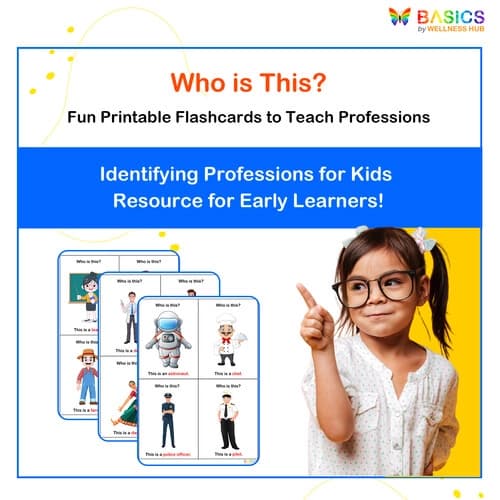
Who Questions Flashcards – Identifying Professions for Kids (Printable PDF)
₹ 80.00
₹ 160.00
50% off
4.8 (52 ratings)
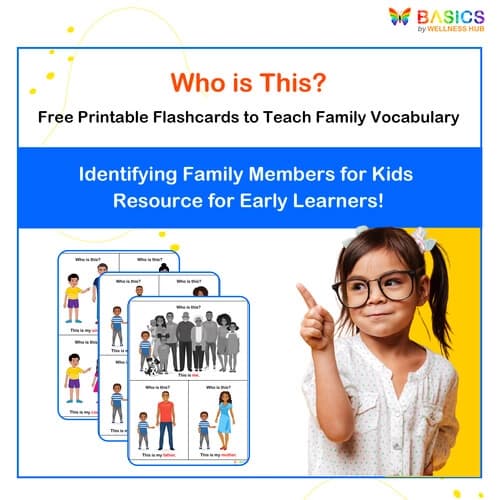
Who Questions Flashcards – Identifying Family Members for Kids (Free Printable)
FREE
₹160
100% off
5.0 (48 ratings)
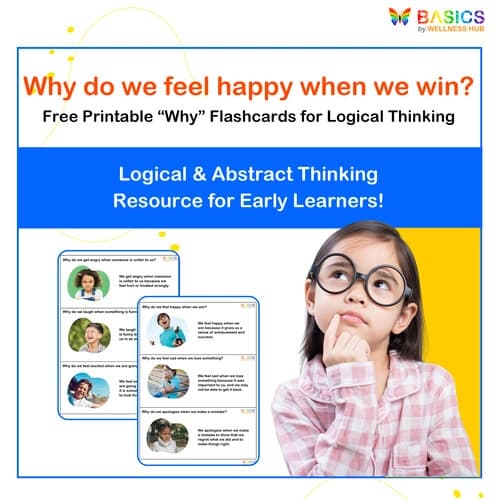
Why Questions Flashcards – Logical & Abstract Thinking for Kids (Free Printable)
FREE
₹160
100% off
4.8 (58 ratings)
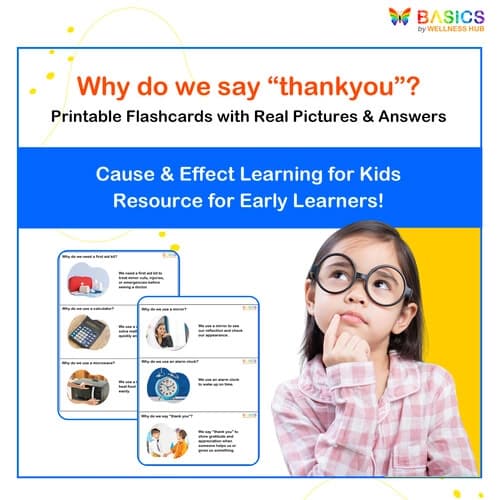
Why Questions Flashcards – Printable Cause & Effect Learning for Kids
₹ 80.00
₹ 160.00
50% off
5.0 (54 ratings)
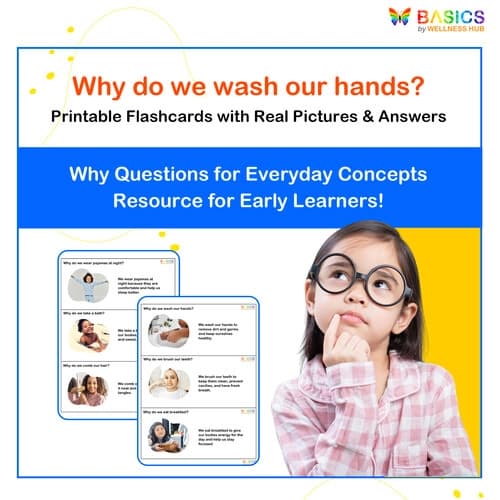
Why Do We…? WH Questions for Everyday Concepts (Printable PDF)
₹ 80.00
₹ 160.00
50% off
5.0 (54 ratings)
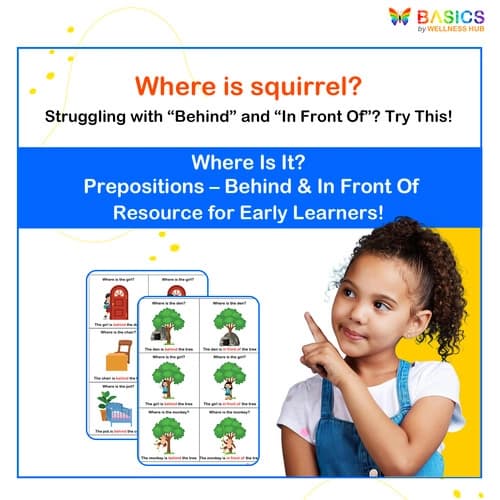
Where Is It? Prepositions – Behind & In Front Of (Printable PDF)
₹ 80.00
₹ 160.00
50% off
4.9 (50 ratings)
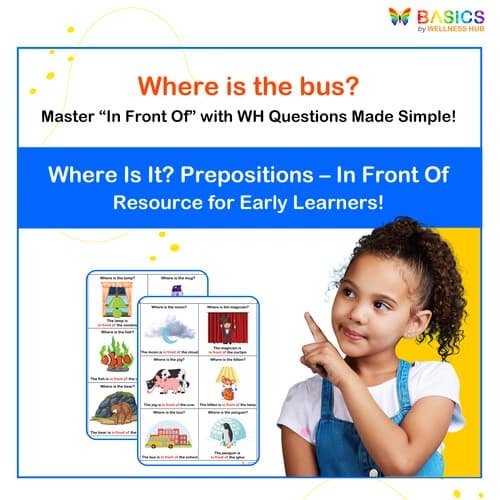
Where Is It? Prepositions – In Front Of (Printable PDF)
₹ 80.00
₹ 160.00
50% off
4.8 (46 ratings)
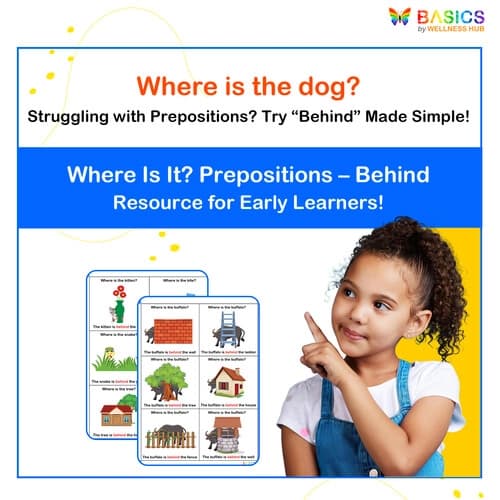
Where Is It? Prepositions – Behind (Printable PDF)
₹ 80.00
₹ 160.00
50% off
5.0 (42 ratings)
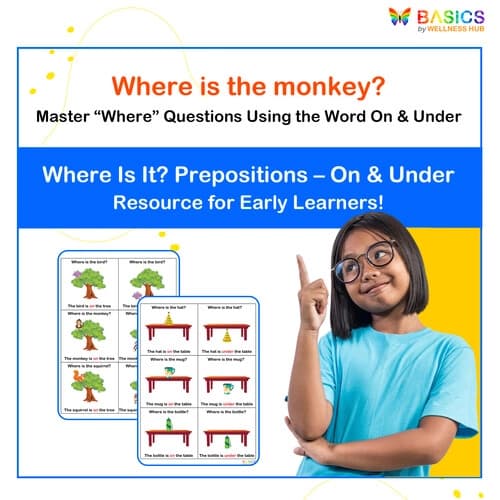
Where Is It? Prepositions – On & Under (Printable PDF)
₹ 80.00
₹ 160.00
50% off
4.9 (60 ratings)
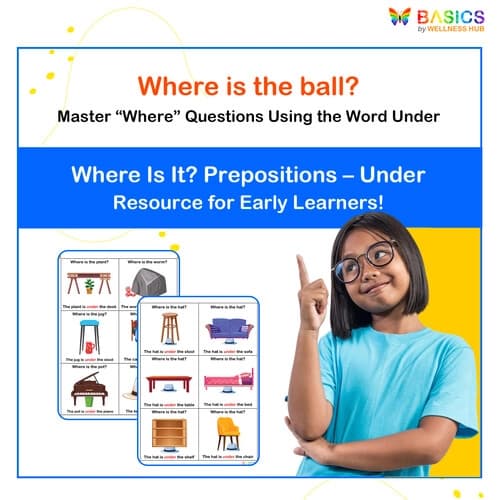
Where Is It? Prepositions – Under (Free Printable PDF)
FREE
₹160
100% off
4.8 (56 ratings)
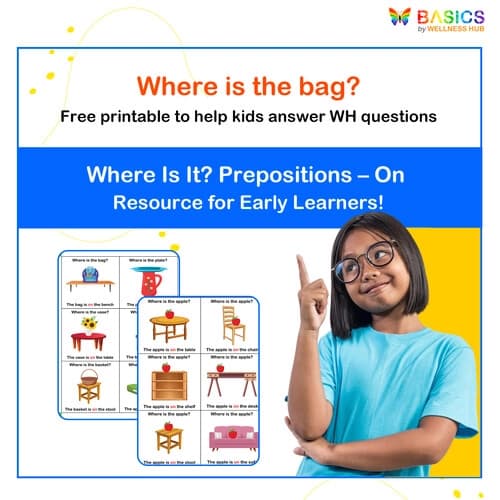
Where Is It? Prepositions – On (Free Printable PDF)
FREE
₹160
100% off
5.0 (52 ratings)
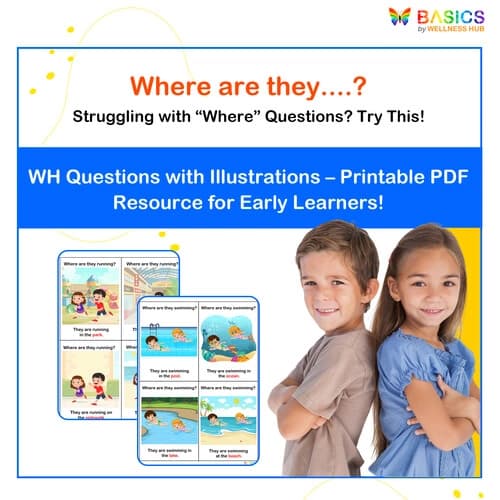
Where Are They? WH Questions with Illustrations – Printable PDF
₹ 80.00
₹ 160.00
50% off
4.9 (48 ratings)
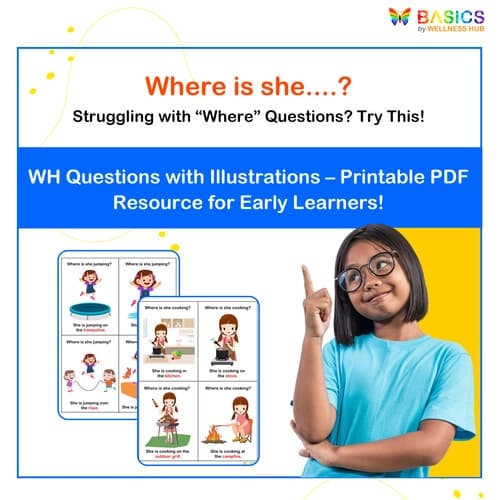
Where Is She? WH Questions with Illustrations – Printable PDF
₹ 80.00
₹ 160.00
50% off
5.0 (32 ratings)
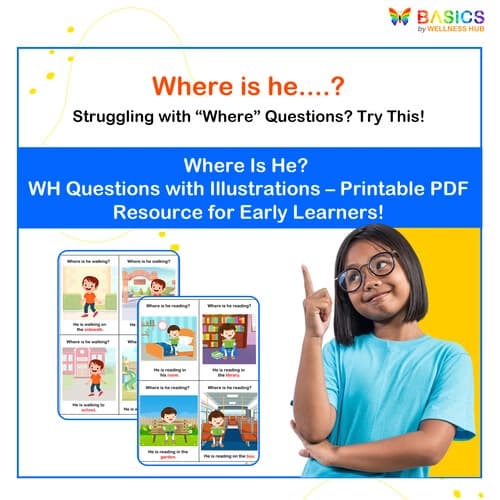
Where Is He? WH Questions with Illustrations – Printable PDF
₹ 80.00
₹ 160.00
50% off
4.9 (42 ratings)
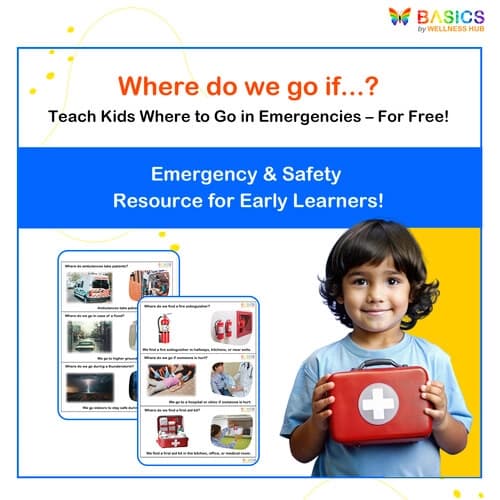
Where Do We Go? WH Questions – Emergency & Safety (Free Printable PDF)
FREE
₹160
100% off
4.8 (60 ratings)
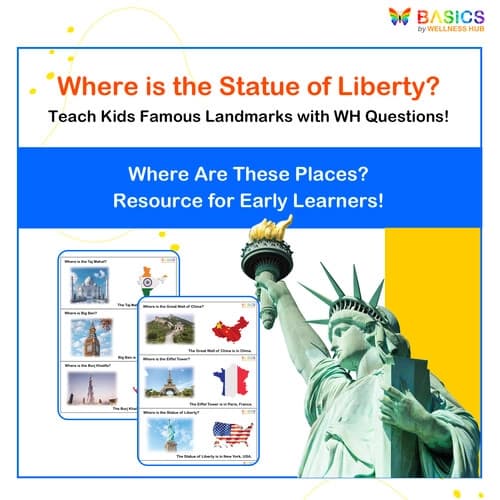
Where Are These Places? WH Questions – Landmarks & Geography (Free Printable PDF)
FREE
₹160
100% off
4.9 (56 ratings)
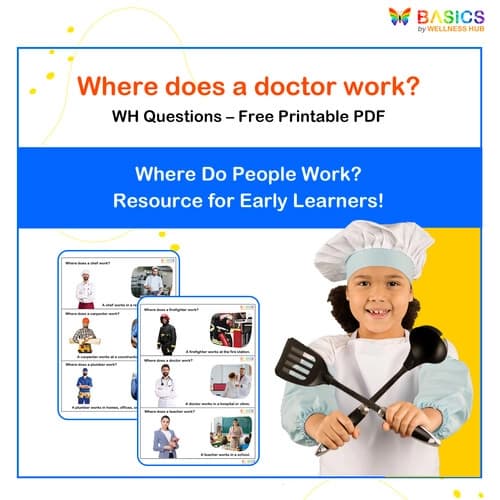
Where Do People Work? WH Questions – Printable Flashcards on Jobs & Places
₹ 80.00
₹ 160.00
50% off
4.8 (52 ratings)
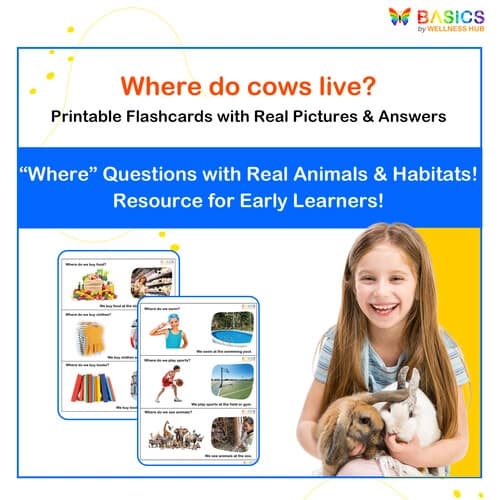
Where Questions in Nature – Printable Flashcards on Animals & Habitats
₹ 80.00
₹ 160.00
50% off
4.7 (48 ratings)
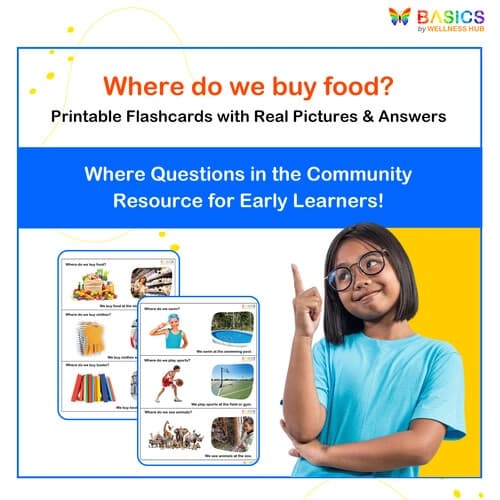
Where Questions in the Community – Printable Flashcards with Real-Life Answers
₹ 80.00
₹ 160.00
50% off
4.6 (44 ratings)
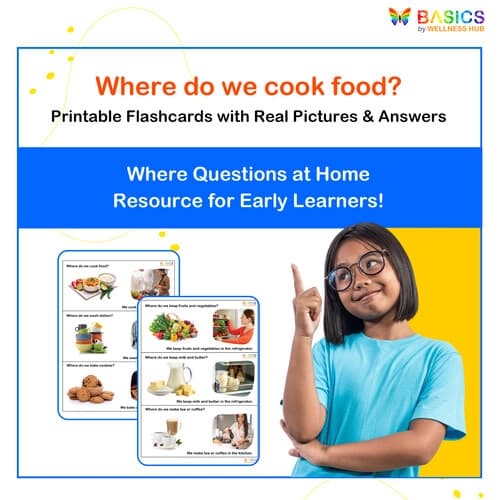
Where Questions at Home – Printable Flashcards with Real-Life Answers
₹ 80.00
₹ 160.00
50% off
4.9 (58 ratings)
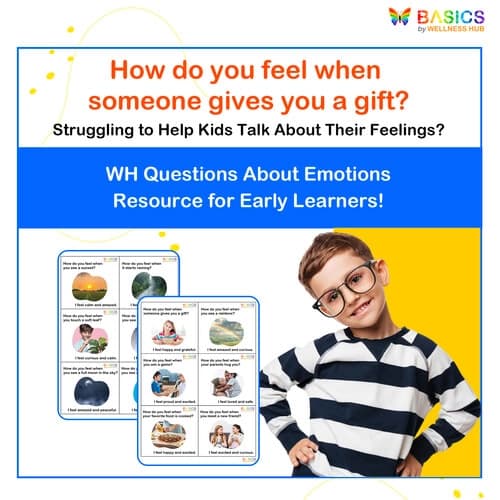
How Do You Feel? WH Questions About Emotions (Printable PDF)
₹ 80.00
₹ 160.00
50% off
4.8 (54 ratings)
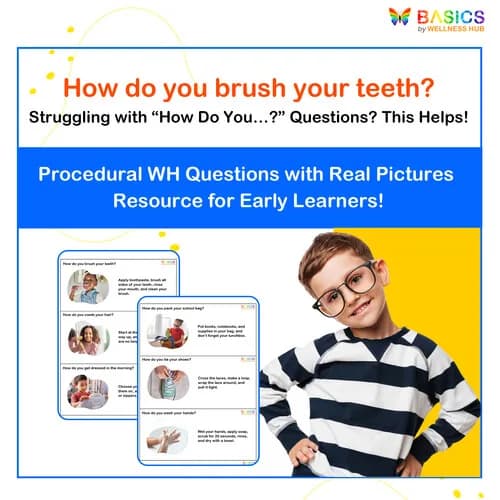
How Do You…? Procedural WH Questions with Real Pictures (Printable PDF)
₹ 80.00
₹ 160.00
50% off
4.7 (50 ratings)
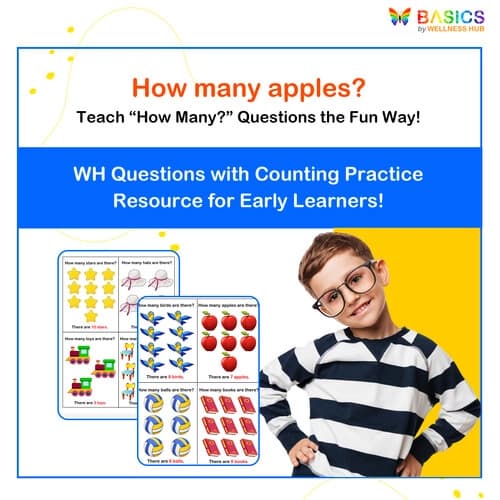
How Many? WH Questions with Counting Practice (Printable PDF)
₹ 80.00
₹ 160.00
50% off
4.6 (46 ratings)
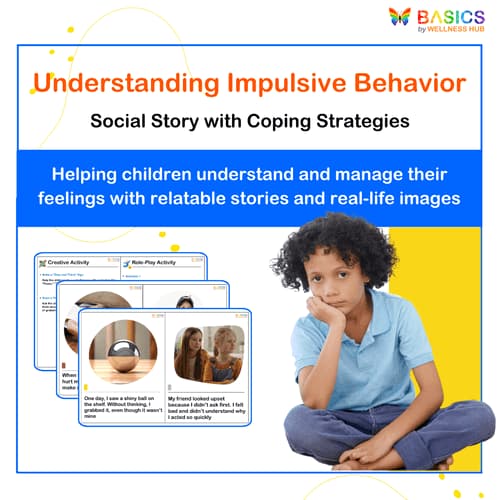
Understanding Impulsive Behavior: Social Story with Coping Strategies
₹ 80.00
₹ 160.00
50% off
4.9 (42 ratings)
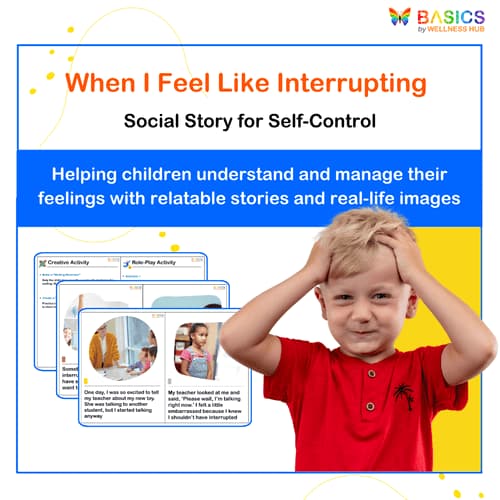
When I Feel Like Interrupting – Social Story for Self-Control
₹ 80.00
₹ 160.00
50% off
4.8 (60 ratings)
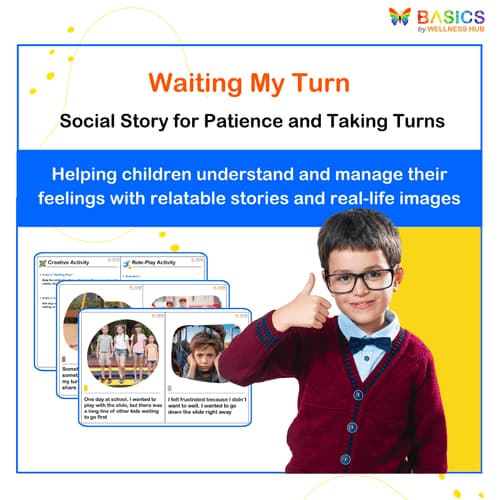
Waiting My Turn – Social Story for Patience and Taking Turns
₹ 80.00
₹ 160.00
50% off
4.7 (56 ratings)
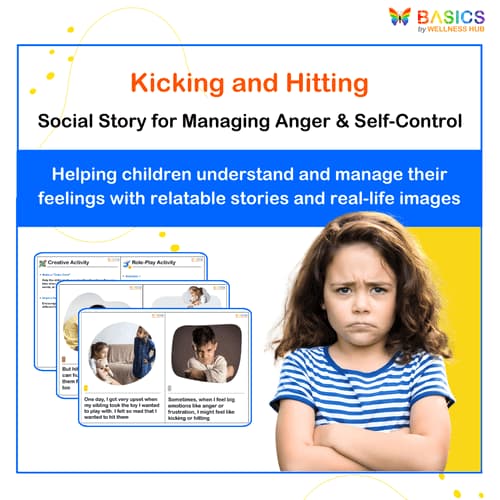
Kicking and Hitting – Social Story for Managing Anger & Self-Control
₹ 80.00
₹ 160.00
50% off
4.6 (52 ratings)
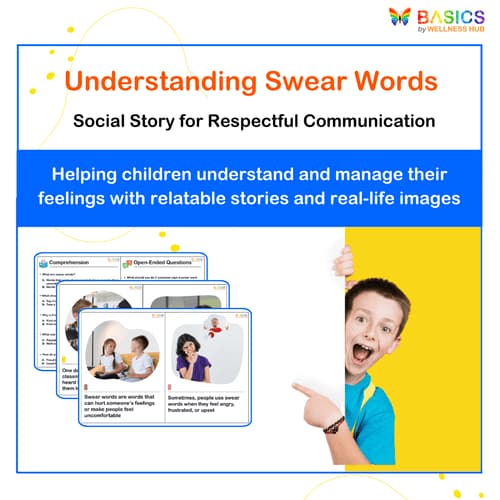
Understanding Swear Words – Social Story for Respectful Communication
₹ 80.00
₹ 160.00
50% off
4.9 (48 ratings)
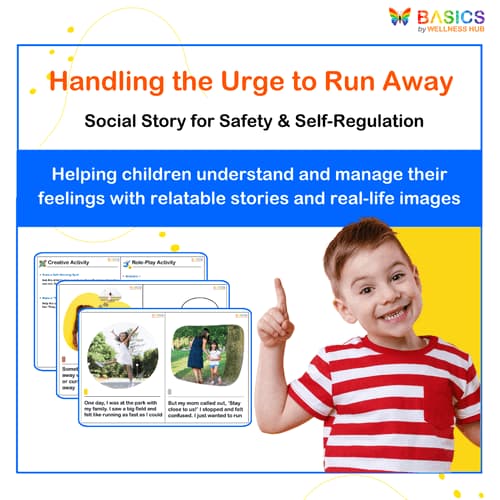
Handling the Urge to Run Away – Social Story for Safety & Self-Regulation
₹ 80.00
₹ 160.00
50% off
4.8 (44 ratings)
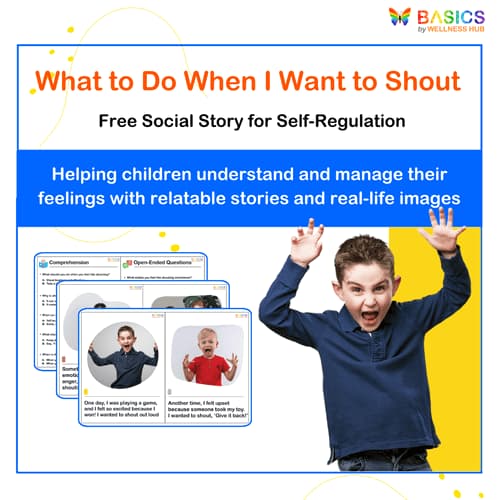
What to Do When I Want to Shout – Free Social Story for Self-Regulation
FREE
₹160
100% off
4.7 (58 ratings)
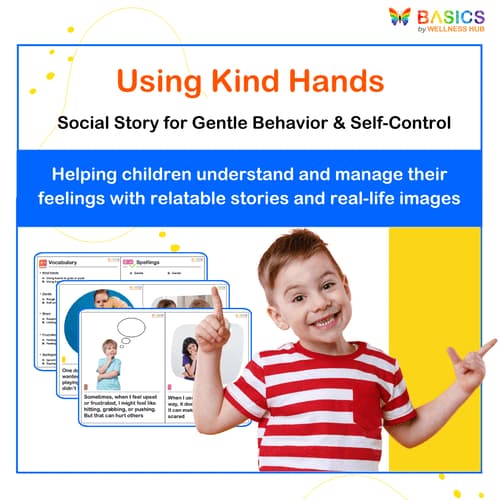
Using Kind Hands – Social Story for Gentle Behavior & Self-Control
₹ 80.00
₹ 160.00
50% off
4.6 (54 ratings)
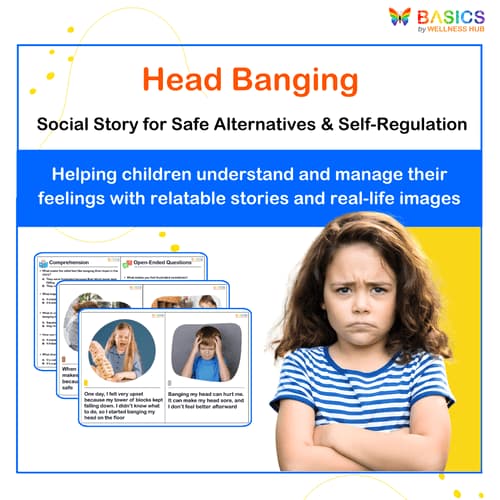
Head Banging – Social Story for Safe Alternatives & Self-Regulation
₹ 80.00
₹ 160.00
50% off
4.9 (50 ratings)
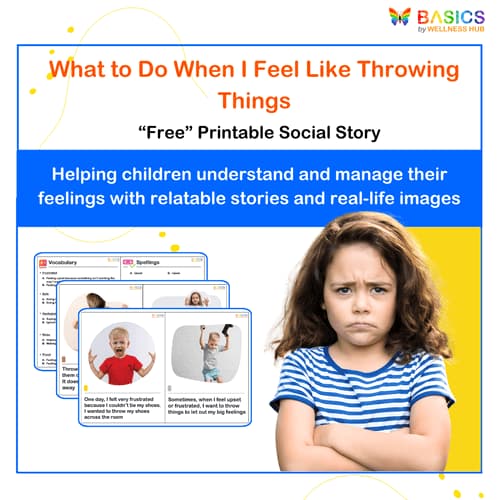
What to Do When I Feel Like Throwing Things – Free Printable Social Story
FREE
₹160
100% off
4.8 (46 ratings)
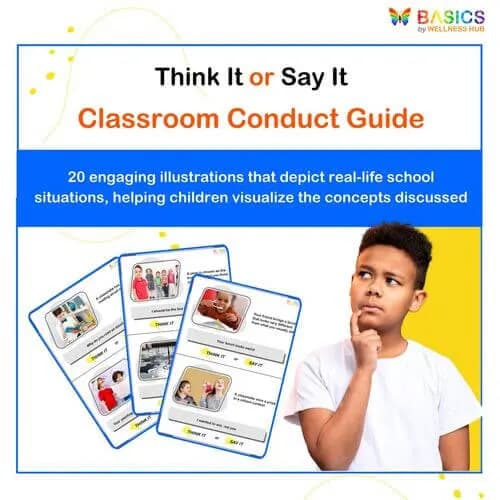
Think It or Say It: Classroom Conduct Guide
₹ 80.00
₹ 160.00
50% off
4.7 (42 ratings)
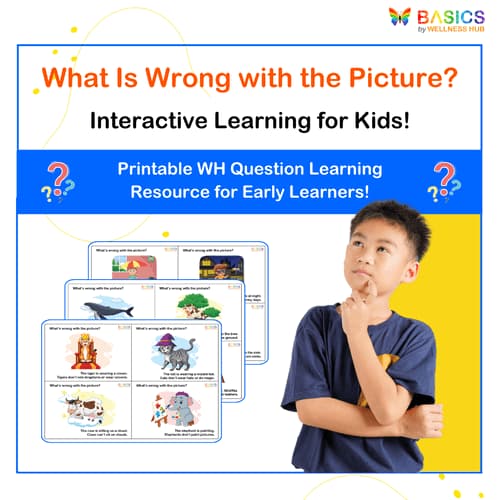
What Is Wrong with the Picture? – Fun Learning with Pictures for Kids
₹ 80.00
₹ 160.00
50% off
4.6 (60 ratings)
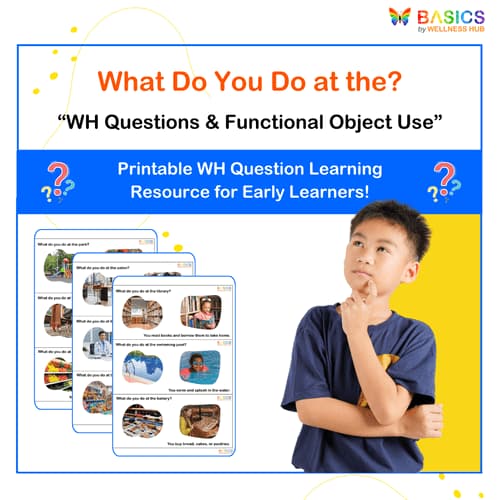
What Do You Do at the? WH Questions & Places – Printable PDF
₹ 80.00
₹ 160.00
50% off
4.9 (56 ratings)
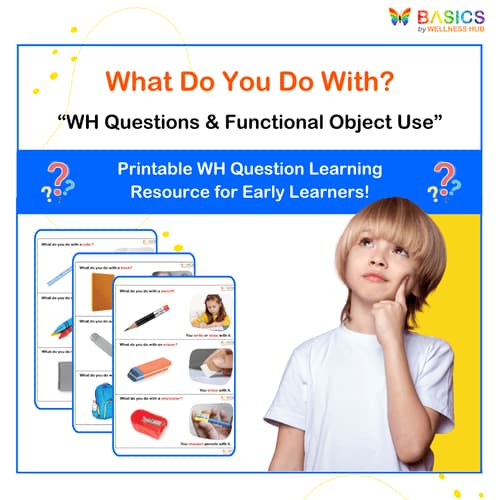
What Do You Do With? WH Questions & Functional Object Use – Printable PDF
₹ 80.00
₹ 160.00
50% off
4.8 (52 ratings)
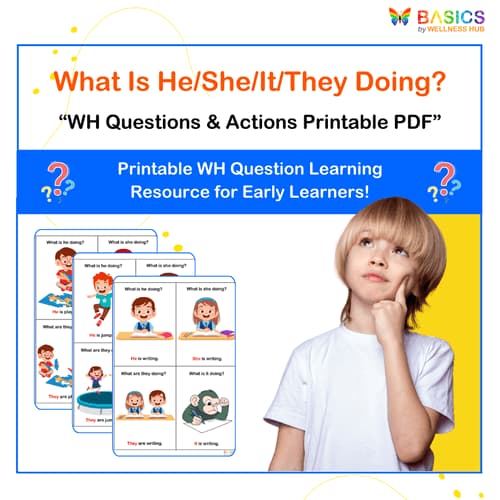
What Is He/She/It/They Doing? WH Questions & Actions Printable – Sentence Building for Kids
₹ 80.00
₹ 160.00
50% off
4.7 (48 ratings)
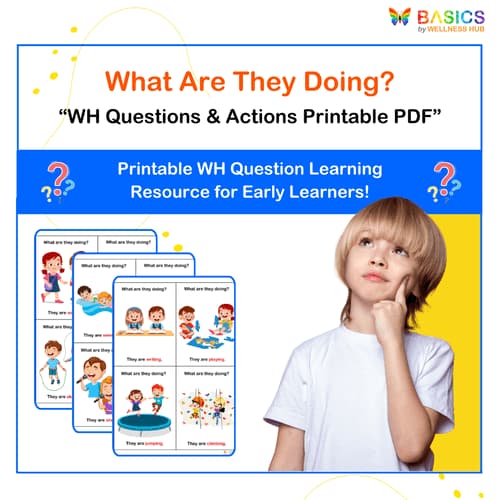
What Are They Doing? WH Questions & Actions Printable – Sentence Building for Kids
₹ 80.00
₹ 160.00
50% off
4.6 (44 ratings)
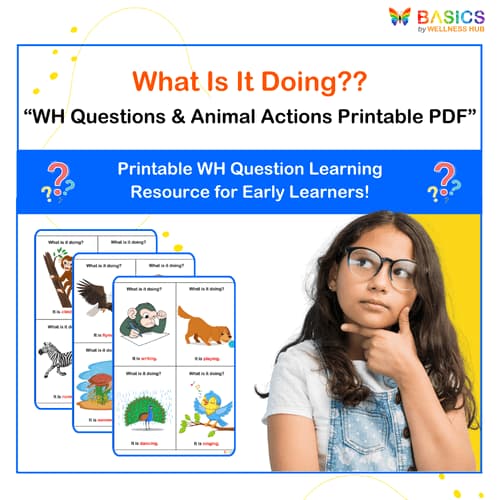
What Is It Doing? WH Questions & Animal Actions Printable – Fun Learning with Animals
₹ 80.00
₹ 160.00
50% off
4.9 (58 ratings)
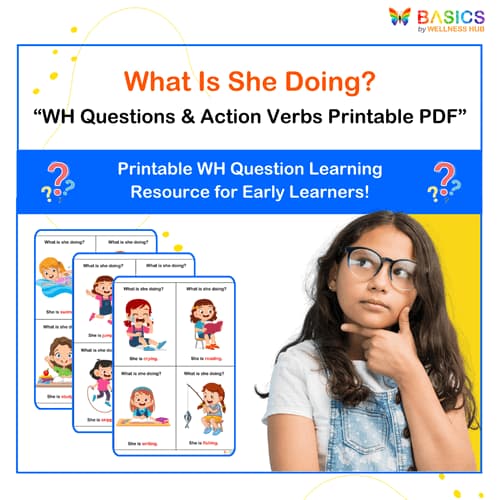
What Is She Doing? WH Questions & Action Verbs Printable – Learn Verbs & Sentence Formation
₹ 80.00
₹ 160.00
50% off
4.8 (54 ratings)
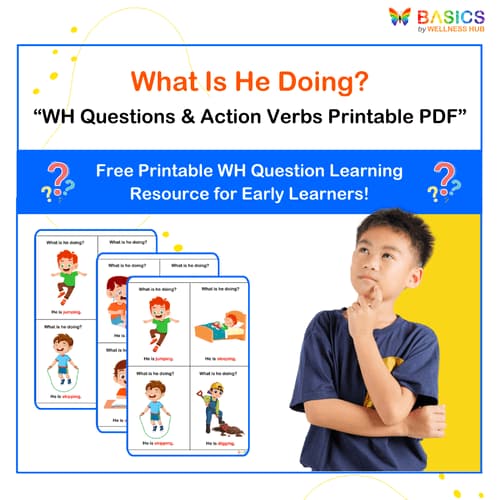
What Is He Doing? Action Words Printable – Learn Verbs & WH Questions
₹ 80.00
₹ 160.00
50% off
4.7 (50 ratings)
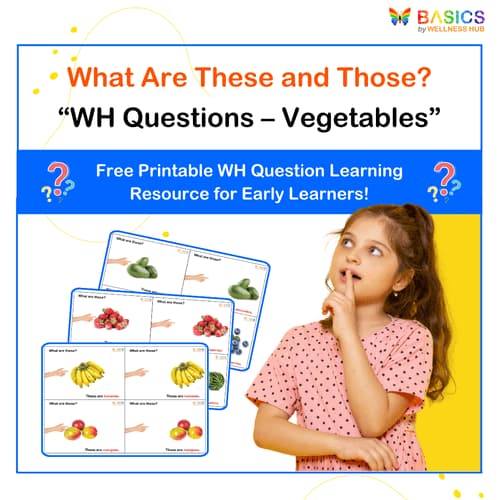
What Are These and Those? WH Questions – Vegetables (Free Printable PDF)
FREE
₹160
100% off
4.6 (46 ratings)
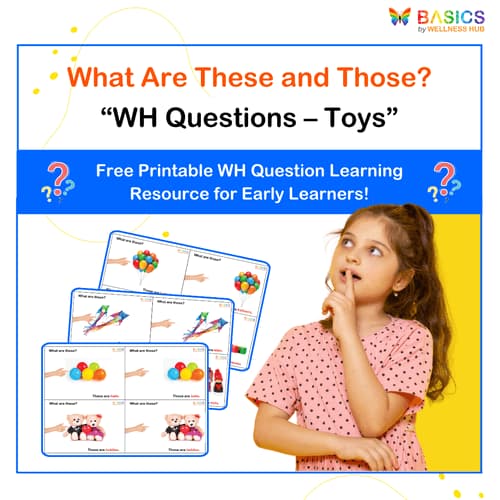
What Are These and Those? WH Questions – Toys (Free Printable PDF)
FREE
₹160
100% off
4.9 (42 ratings)
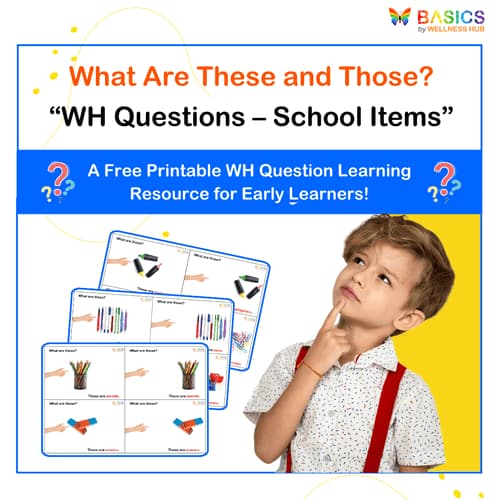
What Are These and Those? WH Questions – School Items (Free Printable PDF)
FREE
₹160
100% off
4.8 (60 ratings)
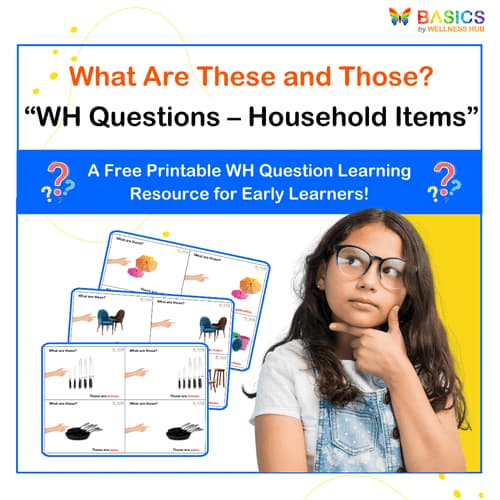
What Are These and Those? WH Questions – Household Items (Free Printable PDF)
FREE
₹160
100% off
4.7 (56 ratings)
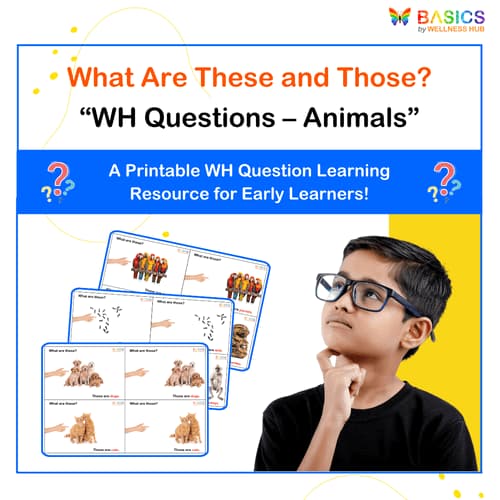
What Are These and Those? WH Questions – Animals (Printable PDF)
₹ 80.00
₹ 160.00
50% off
4.6 (52 ratings)
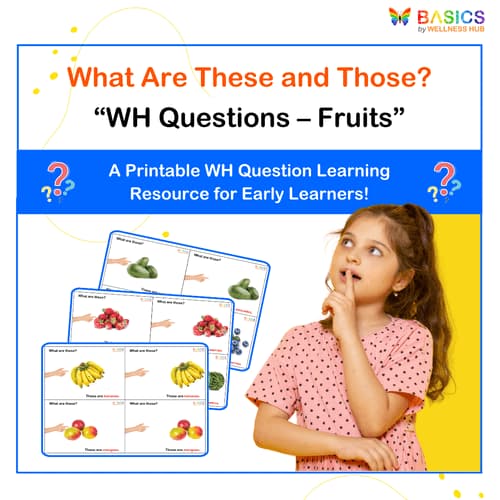
What Are These and Those? WH Questions – Fruits (Printable PDF)
₹ 80.00
₹ 160.00
50% off
4.6 (52 ratings)
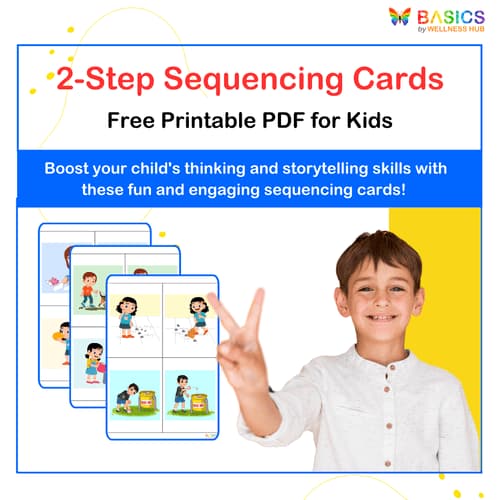
2-Step Sequencing Cards: Free Printable PDF for Daily Activities
FREE
₹160
100% off
4.9 (48 ratings)
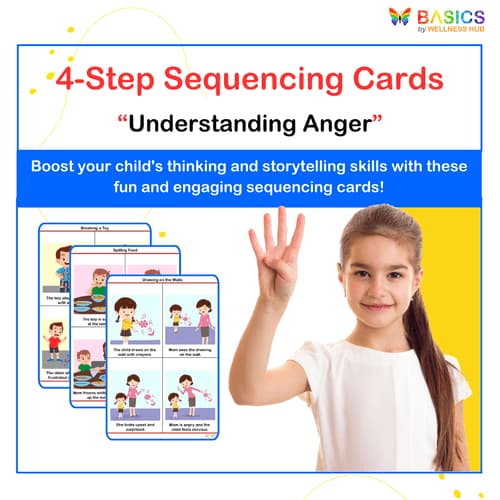
4-Step Sequencing Cards: Understanding Anger – Printable PDF
₹ 80.00
₹ 160.00
50% off
4.8 (44 ratings)
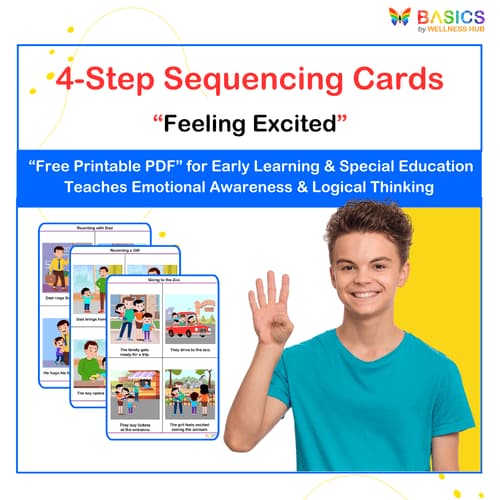
4-Step Sequencing Cards: Free Printable PDF for Feeling Excited
FREE
₹160
100% off
4.7 (60 ratings)
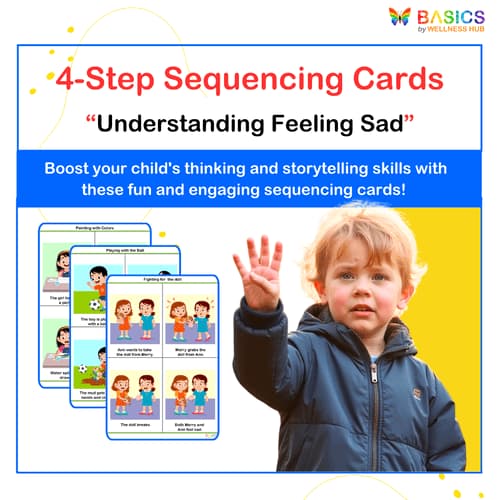
4-Step Sequencing Cards: Printable PDF for Understanding Feeling Sad
₹ 80.00
₹ 160.00
50% off
4.6 (56 ratings)
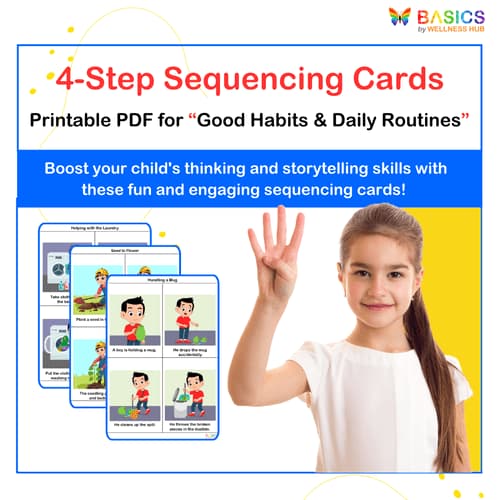
4-Step Sequencing Cards: Printable PDF for Good Habits & Daily Routines
₹ 80.00
₹ 160.00
50% off
4.9 (52 ratings)
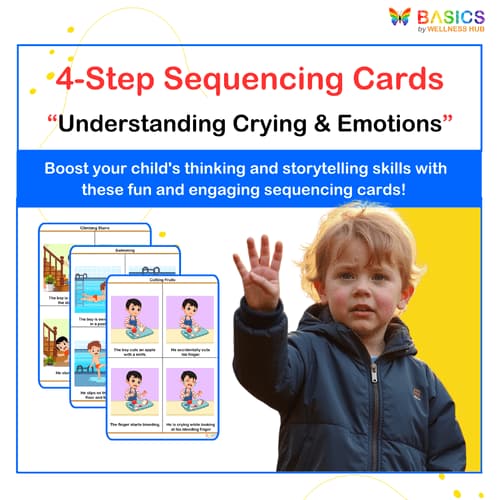
4-Step Sequencing Cards: Printable PDF for Understanding Crying & Emotions
₹ 80.00
₹ 160.00
50% off
4.8 (46 ratings)
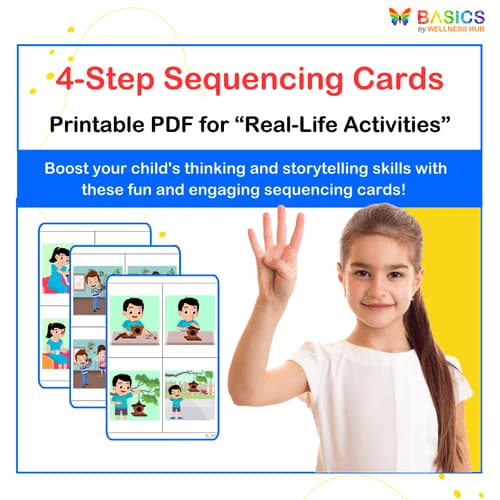
4-Step Sequencing Cards: Printable PDF for Real-Life Activities
₹ 80.00
₹ 160.00
50% off
4.7 (42 ratings)
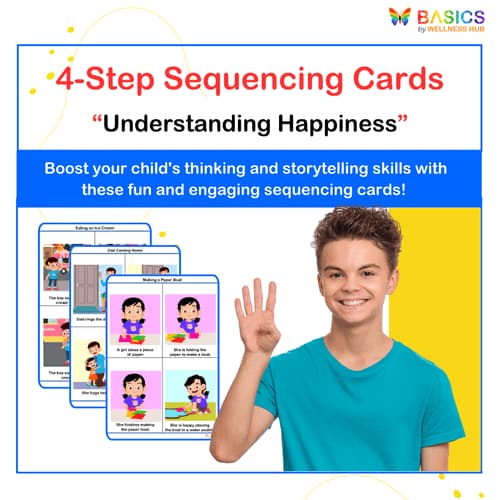
4-Step Sequencing Cards: Printable PDF for Understanding Happiness
₹ 80.00
₹ 160.00
50% off
4.6 (60 ratings)
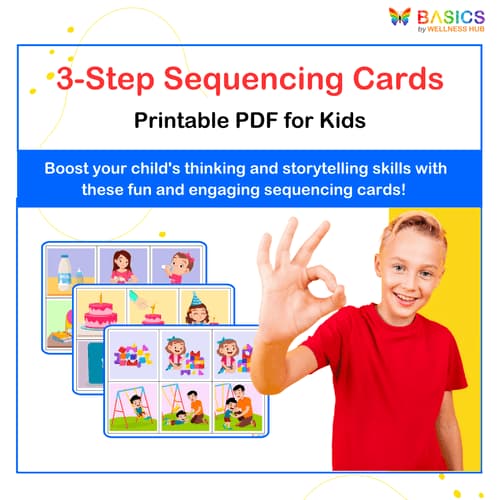
3-Step Sequencing Cards: Printable PDF for Early Learning
₹ 80.00
₹ 160.00
50% off
4.9 (56 ratings)
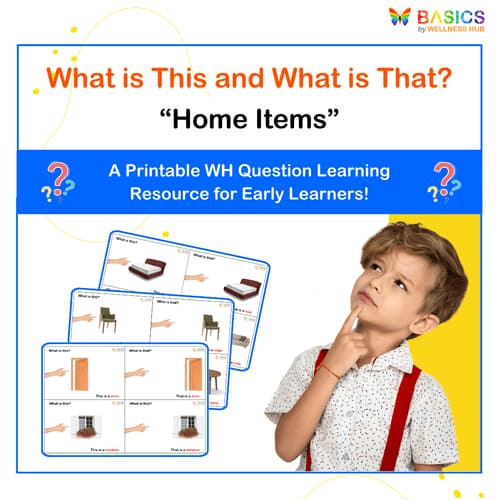
What is This and What is That? - Home Items Learning PDF for Kids WH
₹ 80.00
₹ 160.00
50% off
4.8 (52 ratings)
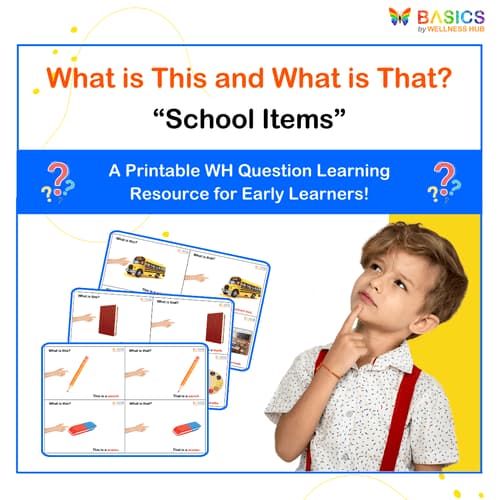
What is This and What is That? - School Items Learning PDF for Kids WH
₹ 80.00
₹ 160.00
50% off
4.7 (48 ratings)
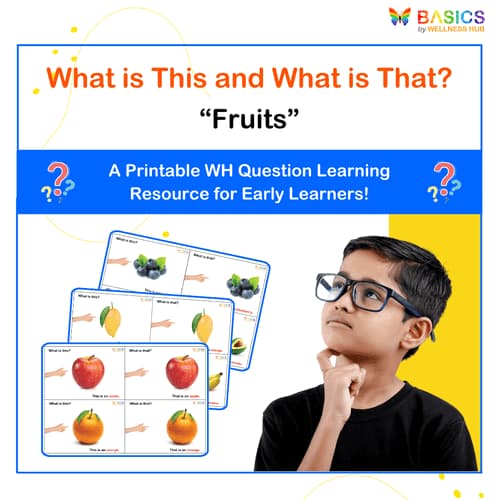
What is This and What is That? - Fruits Learning PDF for Kids WH
₹ 80.00
₹ 160.00
50% off
4.6 (44 ratings)
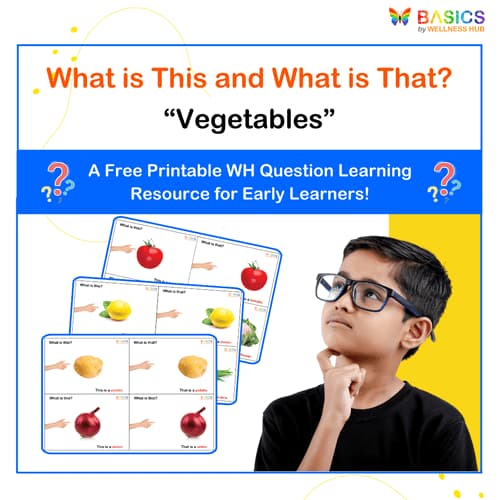
What is This and What is That? - Free Vegetables Learning PDF for Kids WH
FREE
₹160
100% off
4.9 (58 ratings)
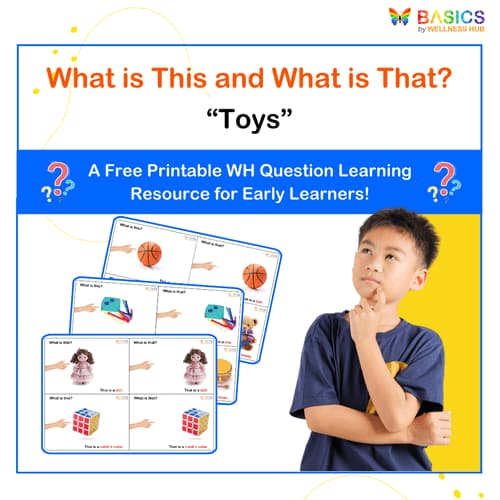
What is This and What is That? - Free Toys Learning PDF for Kids WH
FREE
₹160
100% off
4.8 (54 ratings)
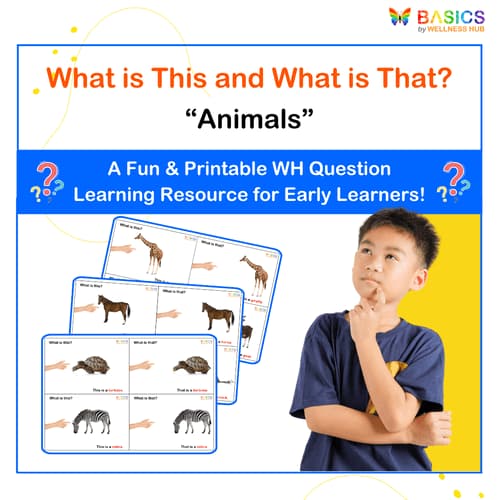
What is This and What is That? - Animals Learning PDF for Kids WH
₹ 80.00
₹ 160.00
50% off
4.7 (50 ratings)
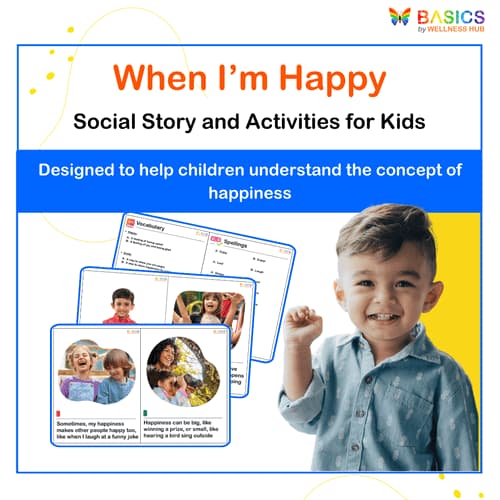
When I’m Happy: Social Story for Kids - Free PDF
FREE
₹160
100% off
4.6 (46 ratings)
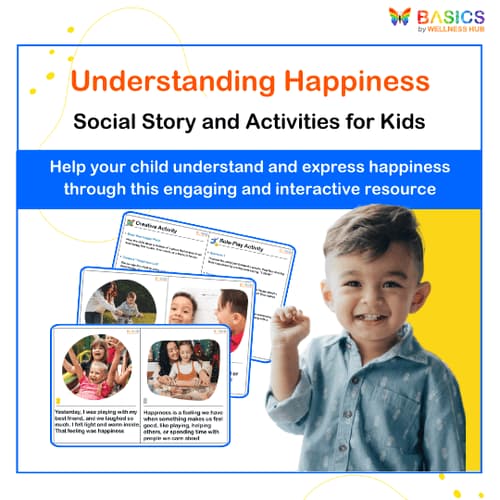
Understanding Happiness: Social Story with Engaging Activities for Kids
₹ 80.00
₹ 160.00
50% off
4.9 (42 ratings)
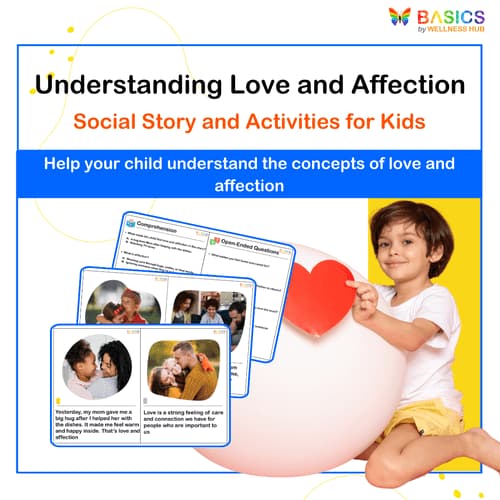
Understanding Love and Affection: Free Social Story with Activities for Kids
FREE
₹160
100% off
4.8 (58 ratings)
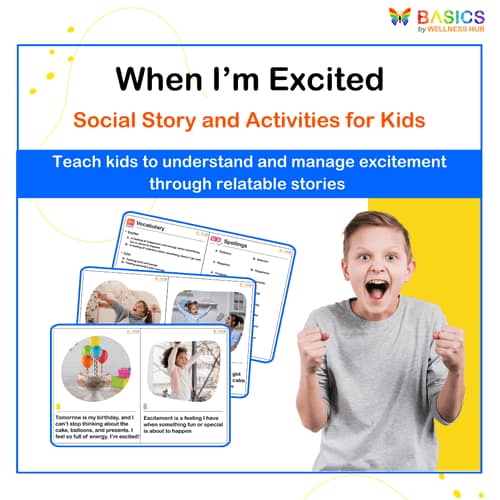
When I’m Excited: Social Story with Activities for Emotional Growth
₹ 80.00
₹ 160.00
50% off
4.7 (54 ratings)
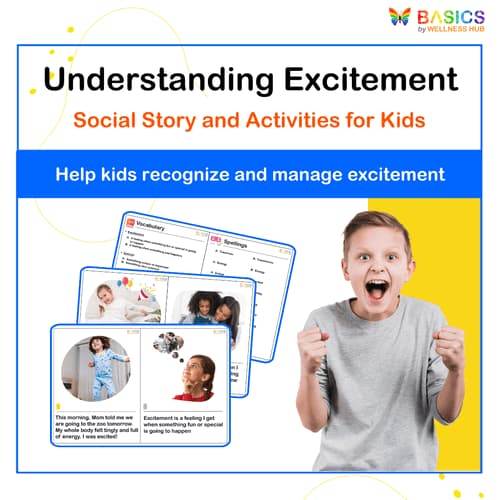
Understanding Excitement: Social Story and Activities for Kids
₹ 80.00
₹ 160.00
50% off
4.6 (50 ratings)
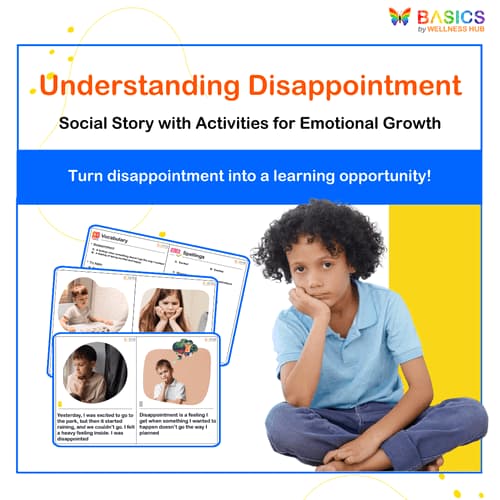
Understanding Disappointment: Social Story & Activities for Kids
₹ 80.00
₹ 160.00
50% off
4.8 (42 ratings)
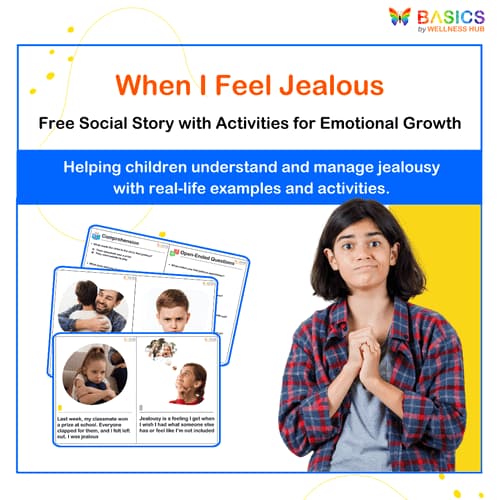
When I Feel Jealous: A Social Story with Activities for Kids
₹ 80.00
₹ 160.00
50% off
4.7 (60 ratings)
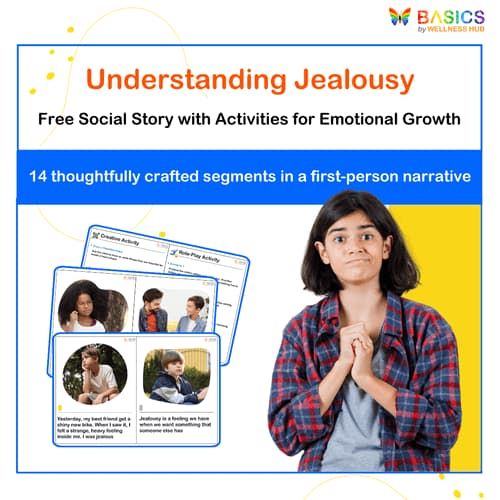
Understanding Jealousy: Free Social Story with Activities for Emotional Growth
FREE
₹160
100% off
4.6 (56 ratings)
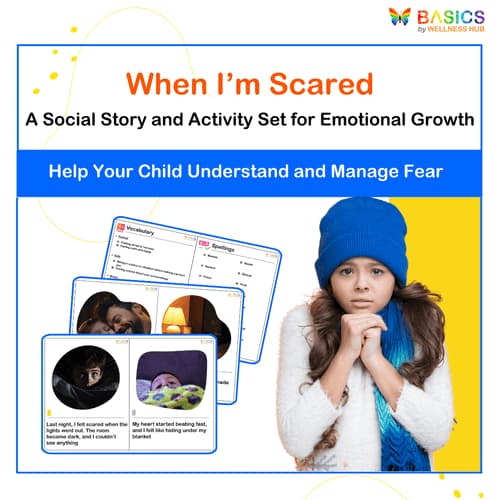
When I’m Scared: Social Story and Activities for Kids
₹ 80.00
₹ 160.00
50% off
4.9 (52 ratings)
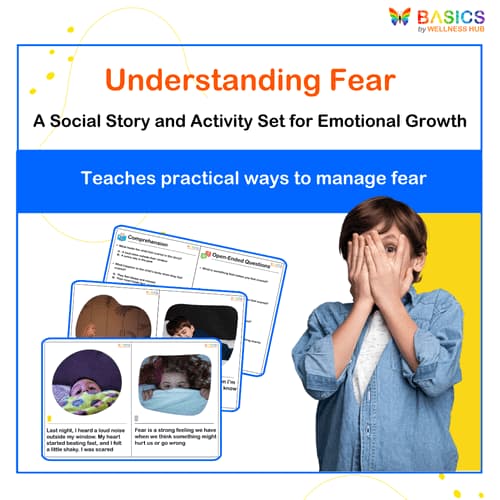
Understanding Fear: A Social Story with Activities for Kids
₹ 80.00
₹ 160.00
50% off
4.8 (48 ratings)
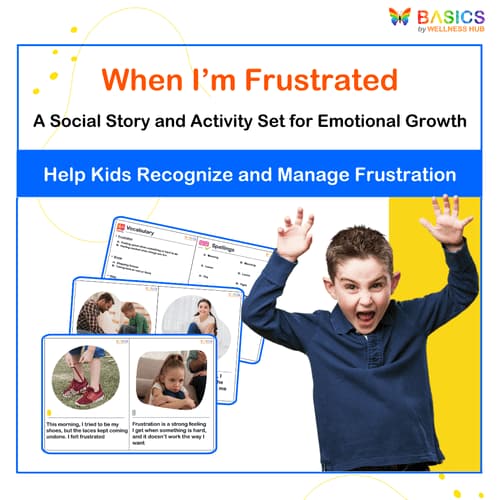
When I’m Frustrated: Free Social Story for Kids with Activities
FREE
₹160
100% off
4.7 (44 ratings)
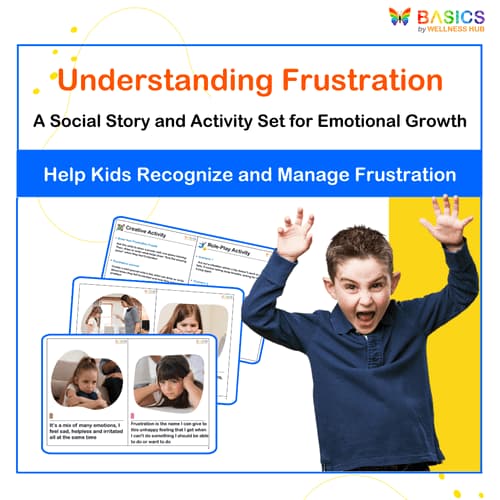
Understanding Frustration: A Social Story for Kids with Activities
₹ 80.00
₹ 160.00
50% off
4.6 (58 ratings)
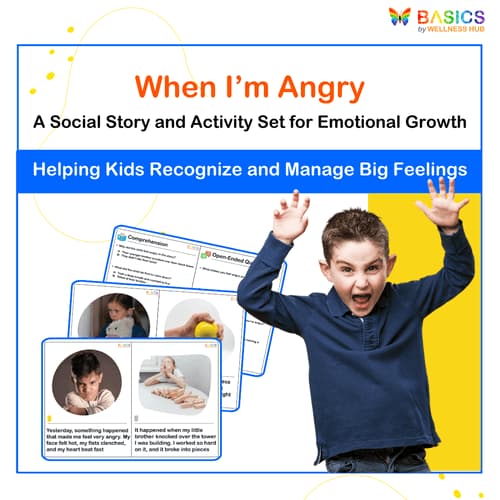
When I’m Angry: Social Story with Activities for Kids
₹ 80.00
₹ 160.00
50% off
4.9 (54 ratings)
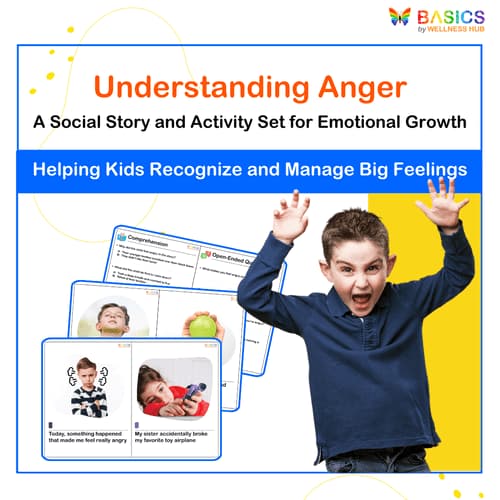
Understanding Anger: Social Story with Activities for Emotional Regulation
₹ 80.00
₹ 160.00
50% off
4.8 (60 ratings)
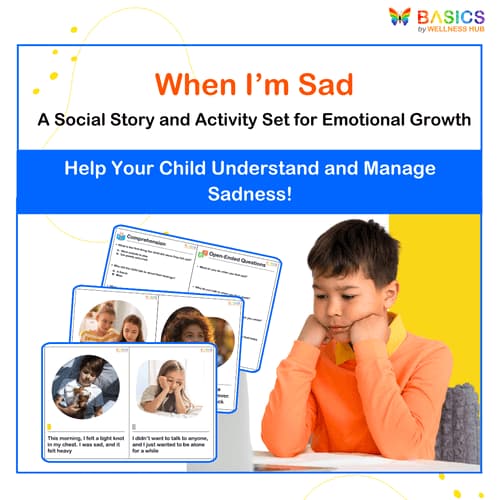
When I’m Sad: A Social Story for Emotional Regulation
₹ 80.00
₹ 160.00
50% off
4.7 (56 ratings)
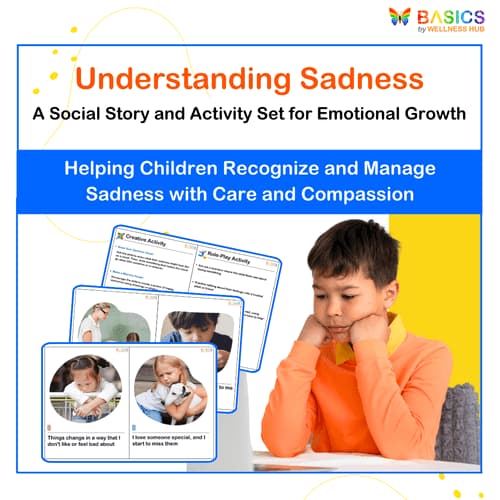
Understanding Sadness: Free Social Story with Activities for Kids
FREE
₹160
100% off
4.6 (52 ratings)
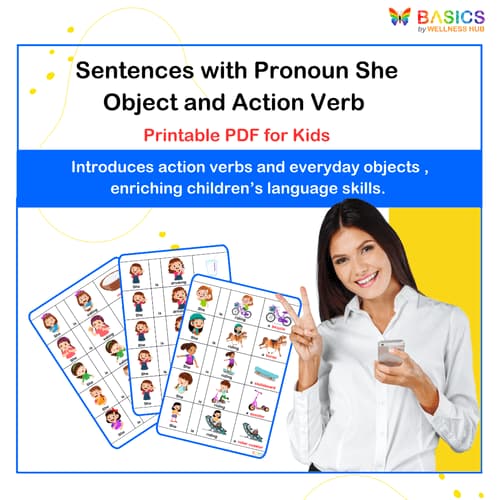
Sentences with Pronoun She: Object and Action Verb - Illustrated PDF for Kids
₹ 80.00
₹ 160.00
50% off
4.6 (60 ratings)
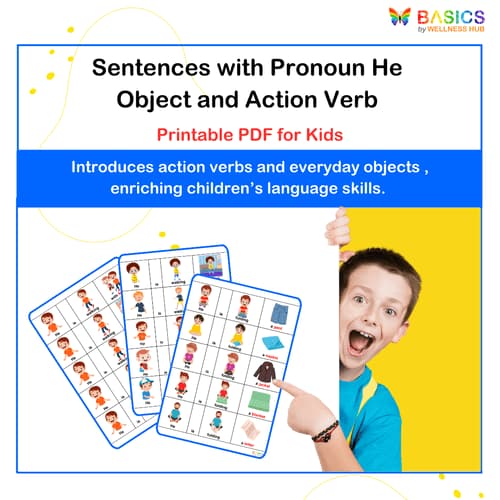
Sentences with Pronoun He: Object and Action Verb - Illustrated PDF for Kids
₹ 80.00
₹ 160.00
50% off
4.9 (56 ratings)
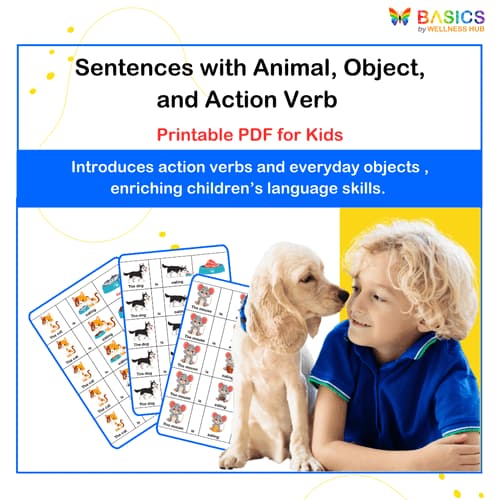
Sentences with Animals, Object, and Action Verb: Illustrated PDF for Kids
₹ 80.00
₹ 160.00
50% off
4.8 (52 ratings)
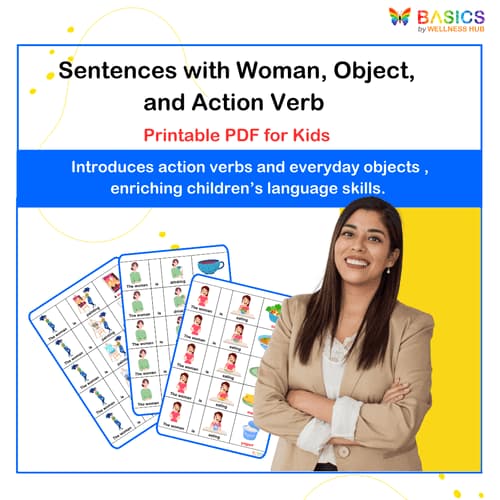
Sentences with Woman, Object, and Action Verb: Illustrated PDF for Kids
₹ 80.00
₹ 160.00
50% off
4.7 (46 ratings)
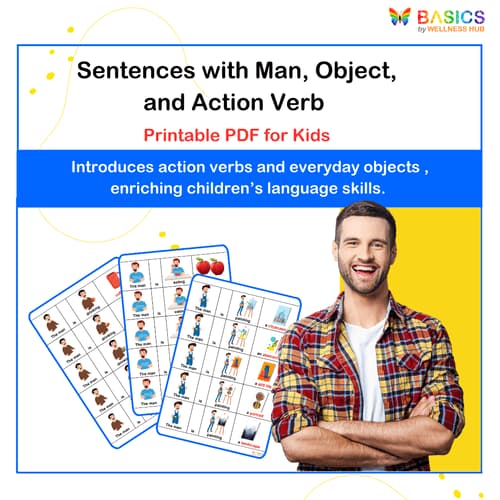
Sentences with Man, Object, and Action Verb: Free Illustrated PDF for Kids
FREE
₹160
100% off
4.6 (42 ratings)
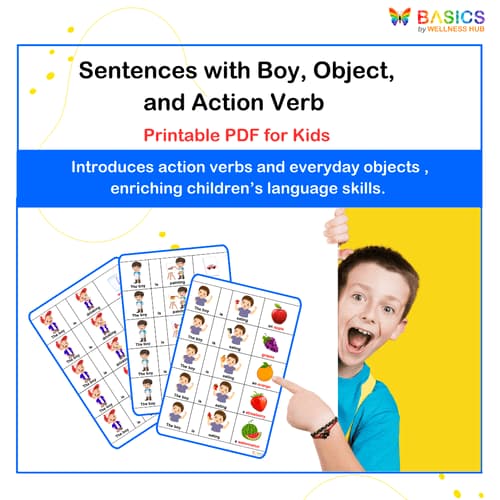
Sentences with Boy, Object, and Action Verb: Illustrated PDF for Kids
₹ 80.00
₹ 160.00
50% off
4.9 (60 ratings)
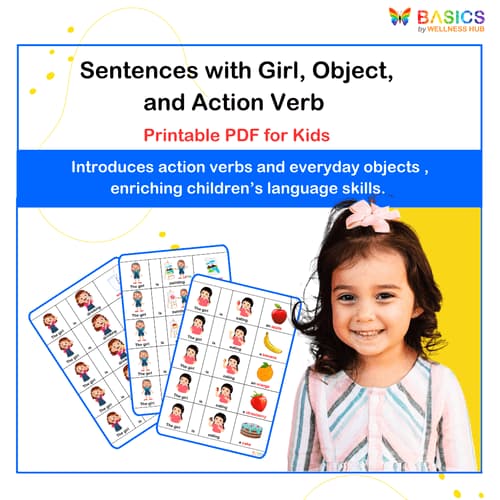
Sentences with Girl, Object, and Action Verb: Illustrated PDF for Kids
₹ 80.00
₹ 160.00
50% off
4.8 (56 ratings)
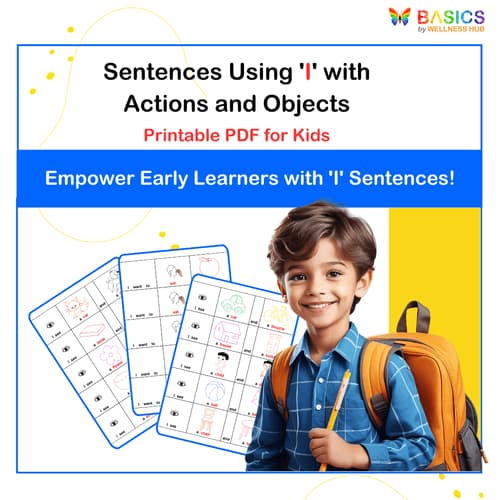
Printable Sentences Using 'I' with Actions and Objects PDF for Kids
₹ 80.00
₹ 160.00
50% off
4.7 (52 ratings)
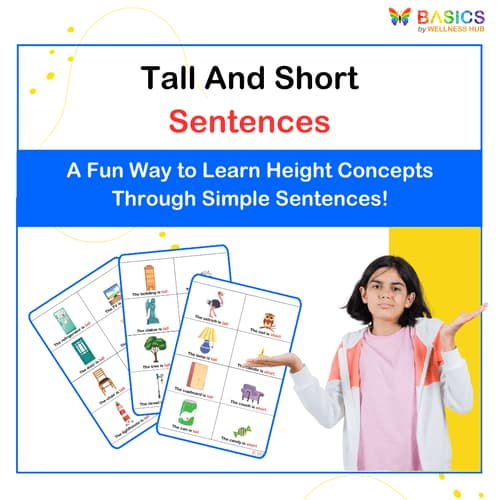
Learning Sentences with Tall and Short: Illustrated PDF for Kids
₹ 80.00
₹ 160.00
50% off
4.6 (48 ratings)
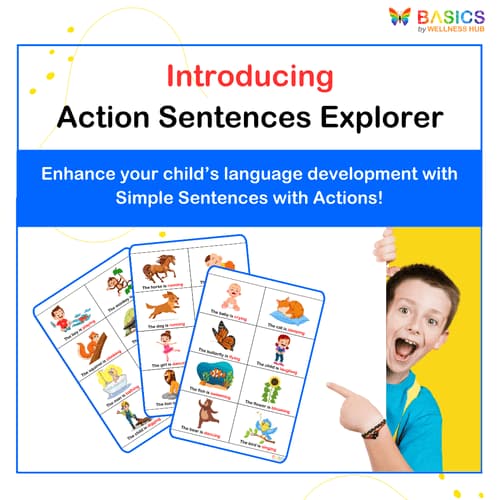
Sentences with Actions Flashcards: Everyday Activities PDF
₹ 80.00
₹ 160.00
50% off
4.9 (44 ratings)
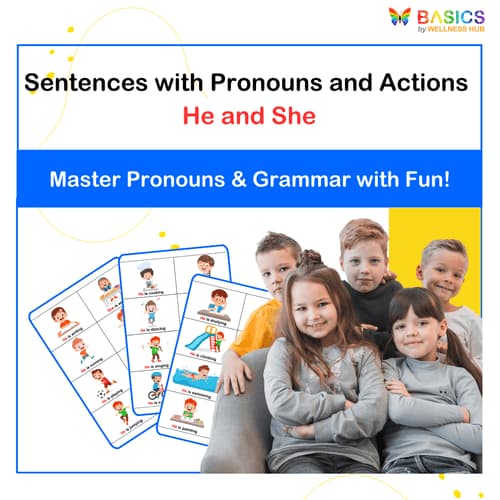
Sentences with Pronouns and Actions: He and She PDF for Kids - Free
FREE
₹160
100% off
4.8 (58 ratings)
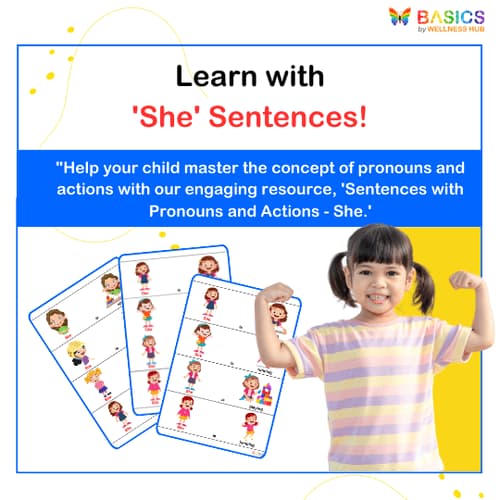
Sentences with Pronouns and Actions: She PDF for Early Learners
₹ 80.00
₹ 160.00
50% off
4.7 (54 ratings)
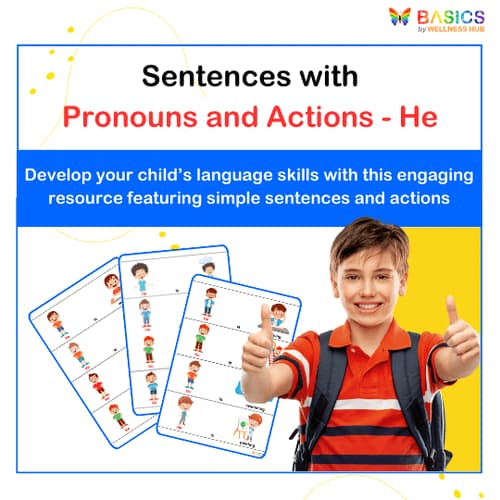
Sentences with Pronouns and Actions: He PDF for Early Learners
₹ 80.00
₹ 160.00
50% off
4.6 (50 ratings)
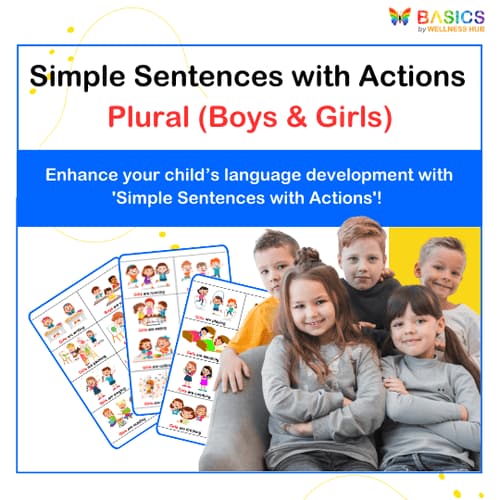
Simple Sentences with Actions: Plural Boys and Girls PDF
₹ 80.00
₹ 160.00
50% off
4.9 (46 ratings)
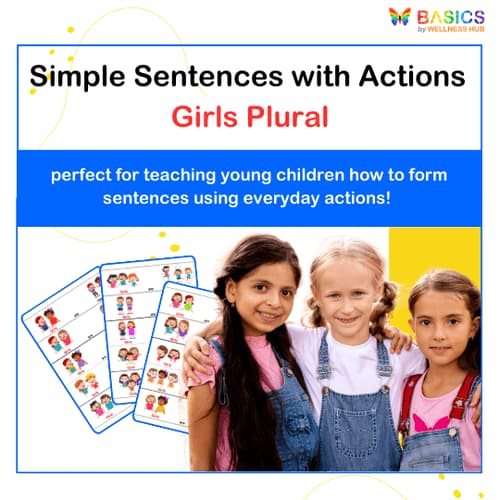
Simple Sentences with Actions: Girls Plural Free PDF
FREE
₹160
100% off
4.8 (42 ratings)
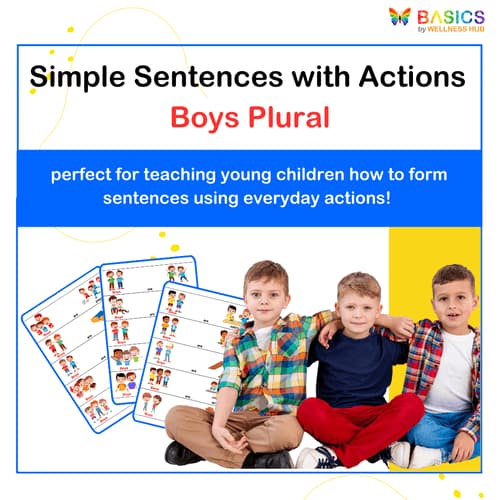
Simple Sentences with Actions: Boys Plural PDF for Kids
₹ 80.00
₹ 160.00
50% off
4.7 (60 ratings)
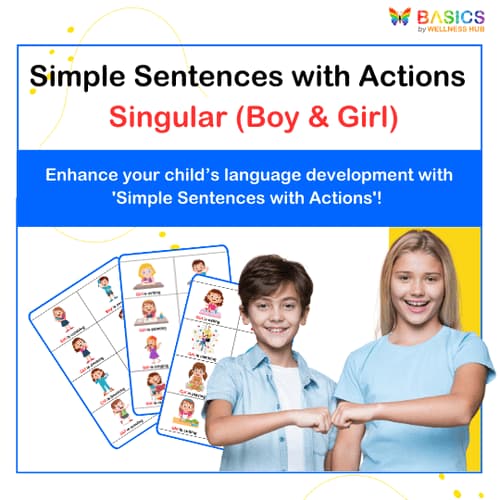
Simple Sentences with Actions: Boy and Girl Singular PDF
₹ 80.00
₹ 160.00
50% off
4.6 (56 ratings)
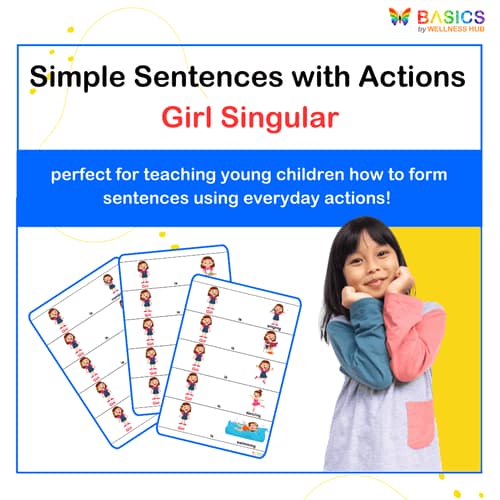
Simple Sentences with Actions: Girl Singular PDF for Kids
₹ 80.00
₹ 160.00
50% off
4.9 (52 ratings)
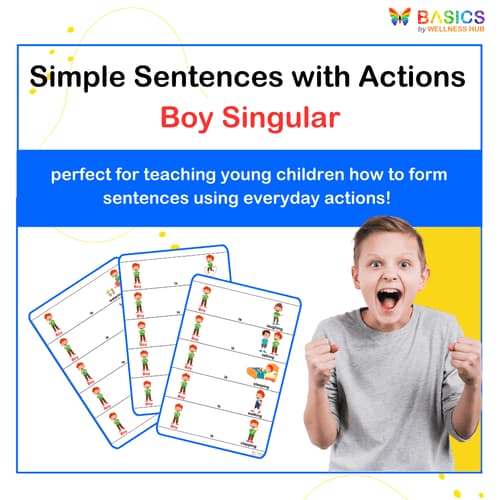
Free Simple Sentences with Actions: Boy Singular PDF for Kids
FREE
₹160
100% off
4.8 (48 ratings)
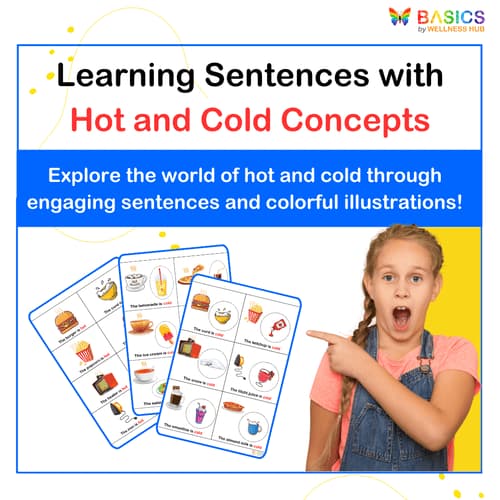
Free Learning Sentences with Hot and Cold: Illustrated PDF for Kids
FREE
₹160
100% off
4.7 (44 ratings)
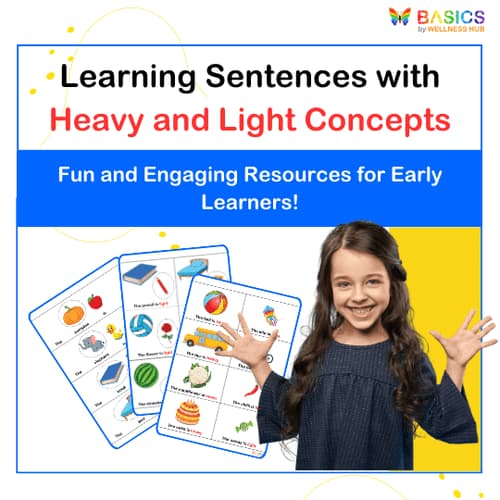
Free Learning Sentences with Heavy and Light: Illustrated PDF for Kids
FREE
₹160
100% off
4.6 (60 ratings)
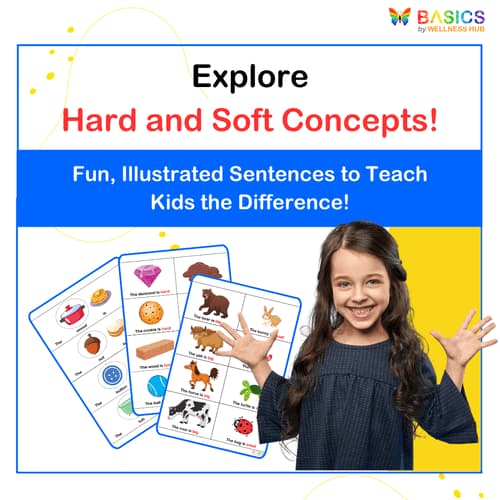
Free Learning Sentences with Hard and Soft: Illustrated PDF for Kids
FREE
₹160
100% off
4.9 (56 ratings)
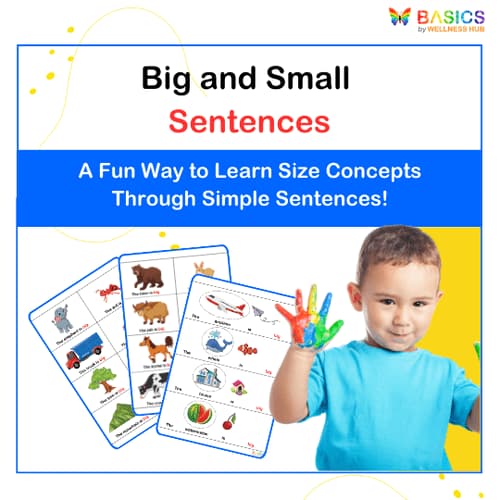
Sentences with Big and Small: Illustrated Learning PDF for Kids
₹ 80.00
₹ 160.00
50% off
4.8 (52 ratings)
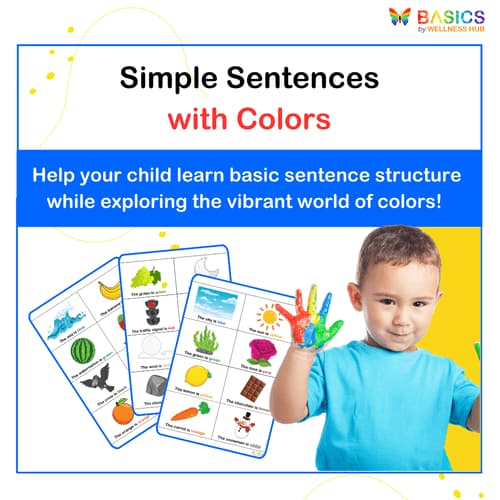
Simple Sentences on Colors: Fun Learning PDF for Kids
₹ 80.00
₹ 160.00
50% off
4.7 (48 ratings)
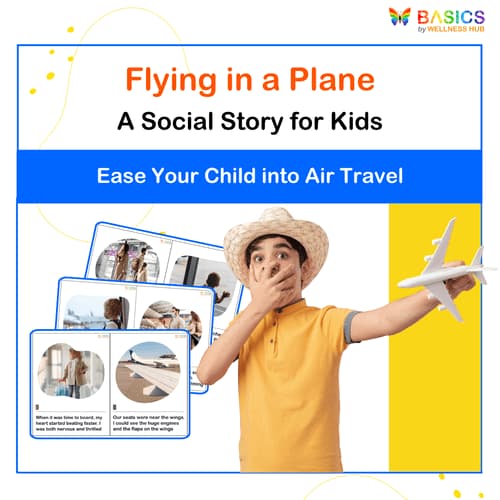
Flying in a Plane: A Social Story for Kids
₹ 80.00
₹ 160.00
50% off
4.6 (44 ratings)
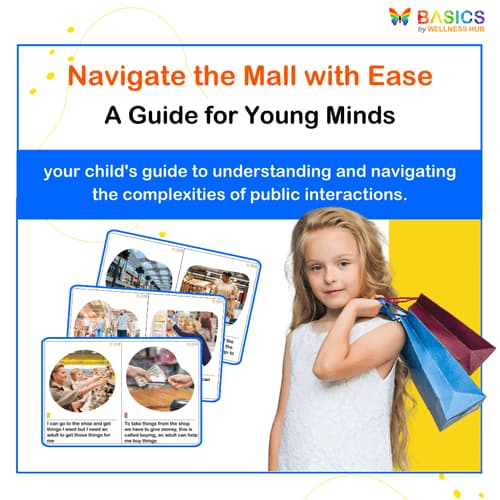
At the Mall: A Social Story for Kids
₹ 80.00
₹ 160.00
50% off
4.9 (60 ratings)
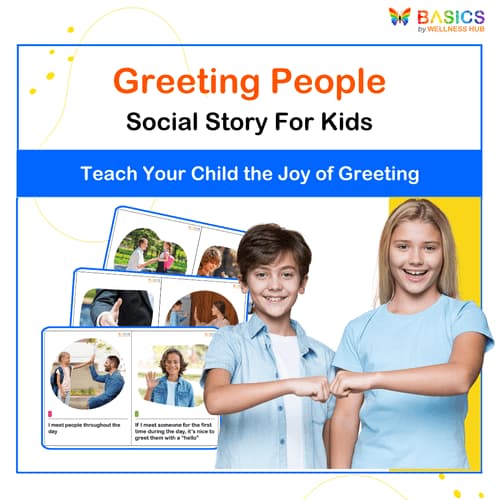
Greeting People: A Social Story for Kids
₹ 80.00
₹ 160.00
50% off
4.8 (56 ratings)
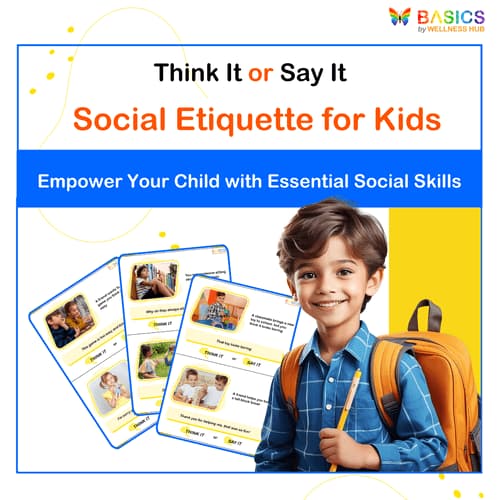
Think It or Say It: Social Etiquette for Kids
₹ 80.00
₹ 160.00
50% off
4.7 (52 ratings)
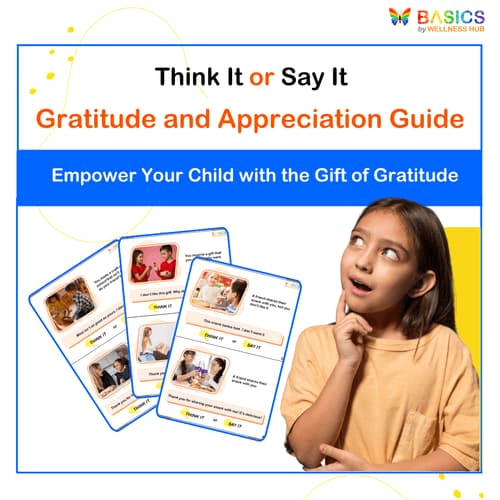
Think It or Say It: Gratitude and Appreciation Guide
₹ 80.00
₹ 160.00
50% off
4.9 (44 ratings)
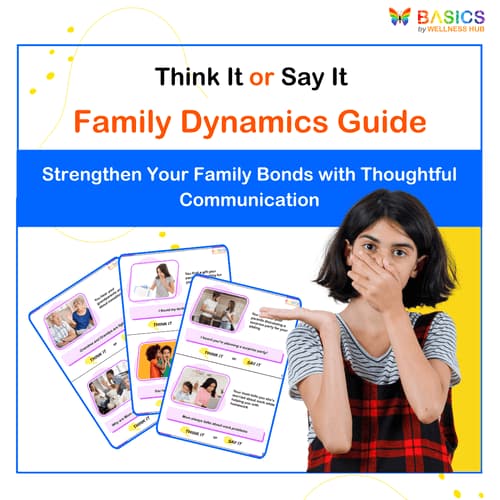
Think It or Say It: Family Dynamics Guide
₹ 80.00
₹ 160.00
50% off
4.8 (58 ratings)
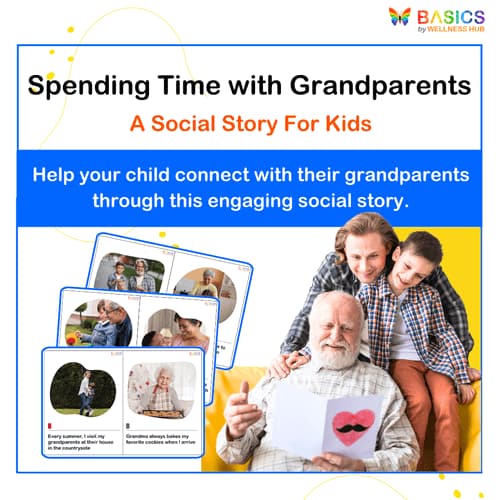
Spending Time with Grandparents: A Social Story for Kids
₹ 80.00
₹ 160.00
50% off
4.6 (56 ratings)
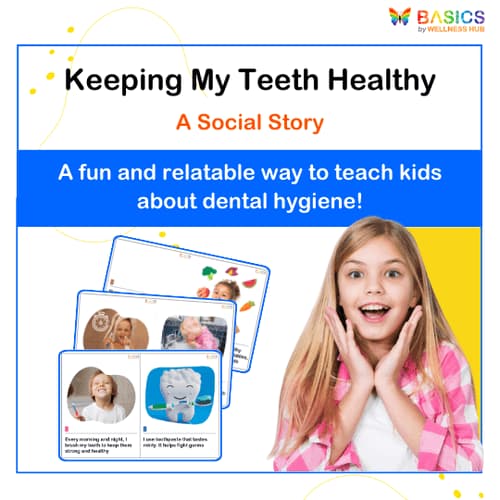
Keeping My Teeth Healthy: A Social Story for Kids
₹ 80.00
₹ 160.00
50% off
4.9 (52 ratings)
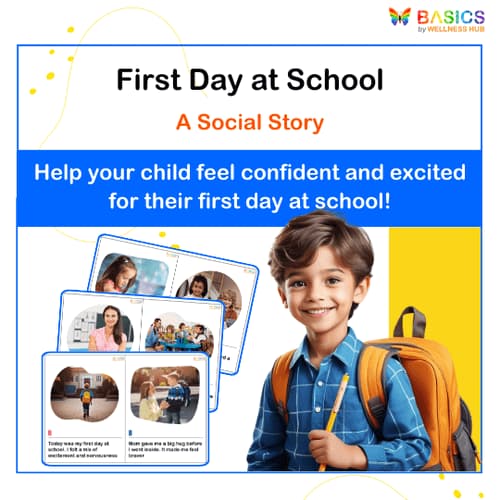
First Day at School Social Story
₹ 80.00
₹ 160.00
50% off
4.8 (48 ratings)
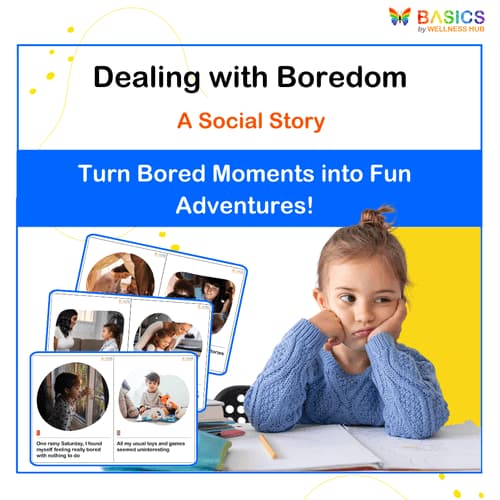
Dealing with Boredom: A Social Story for Kids
₹ 80.00
₹ 160.00
50% off
4.7 (44 ratings)
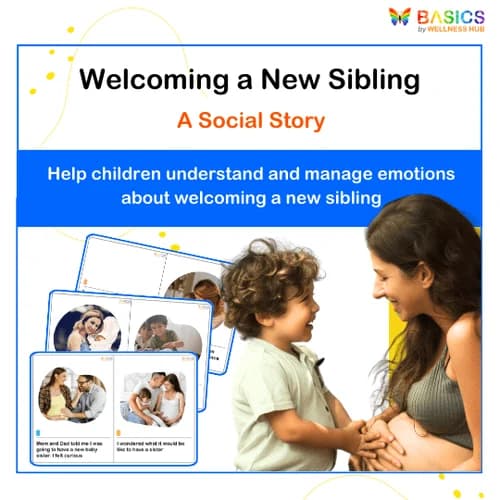
Welcoming a New Sibling: A Social Story for Kids
₹ 80.00
₹ 160.00
50% off
4.8 (50 ratings)
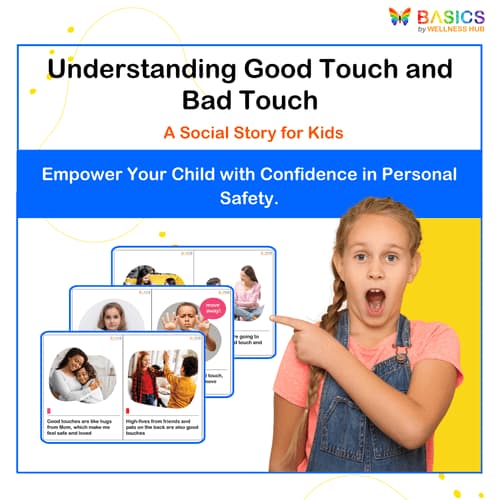
Understanding Good Touch and Bad Touch - A Child Safety Social Story
₹ 80.00
₹ 160.00
50% off
4.7 (46 ratings)
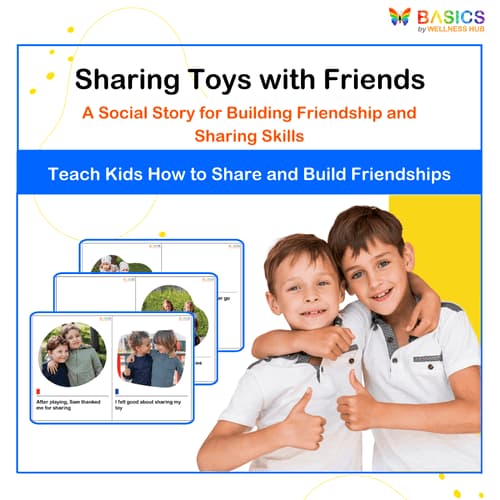
Sharing Toys with Friends: Social Story for Kids
₹ 80.00
₹ 160.00
50% off
4.6 (42 ratings)
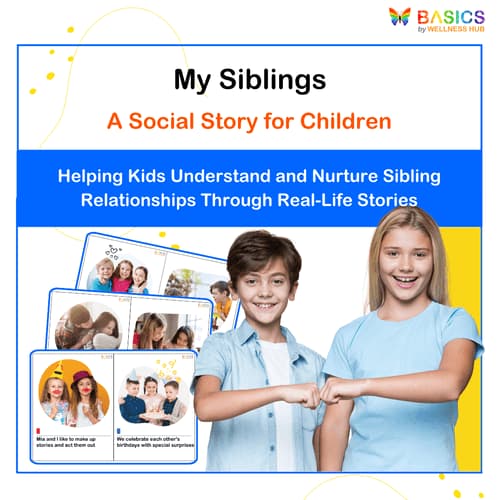
My Siblings: Understanding and Caring for Each Other
₹ 80.00
₹ 160.00
50% off
4.8 (52 ratings)
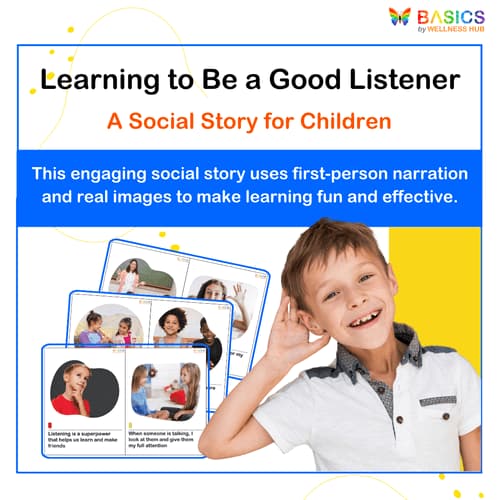
Learning to Be a Good Listener: Social Story for Kids
₹ 80.00
₹ 160.00
50% off
4.9 (58 ratings)
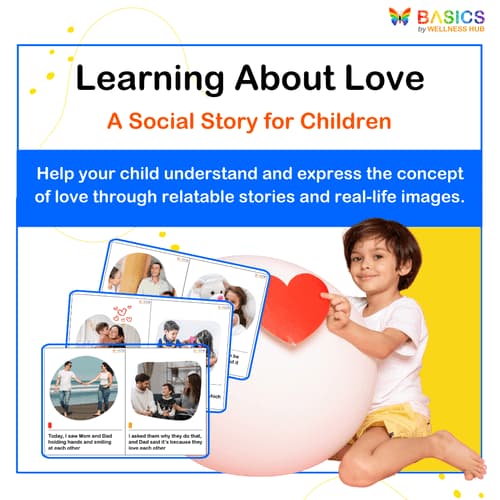
Learning About Love - A Social Story for Kids
₹ 80.00
₹ 160.00
50% off
4.8 (54 ratings)
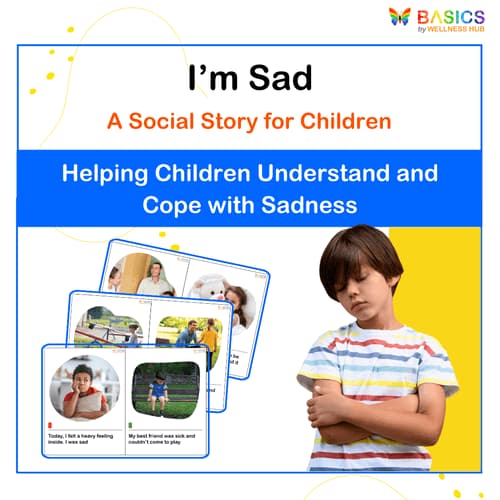
I’m Sad - A Social Story for Kids Helping children understand and cope with feelings of sadness.
₹ 80.00
₹ 160.00
50% off
4.7 (50 ratings)
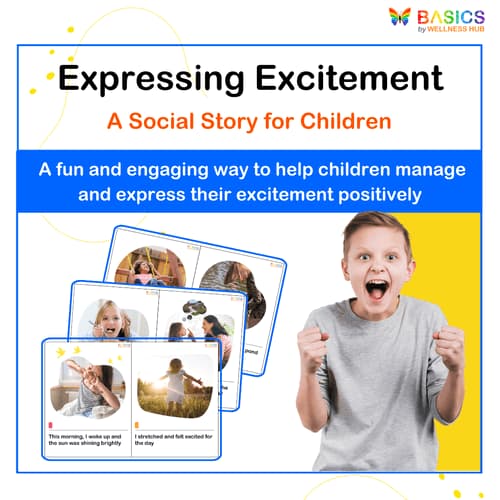
Expressing Excitement: A Social Story for Kids
₹ 80.00
₹ 160.00
50% off
4.9 (42 ratings)
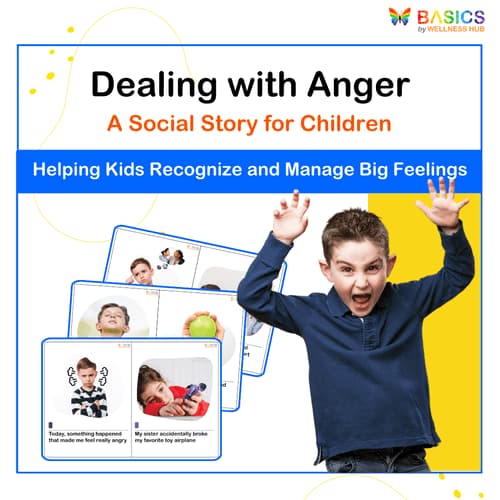
Dealing with Anger: A Social Story for Children
₹ 80.00
₹ 160.00
50% off
4.8 (56 ratings)
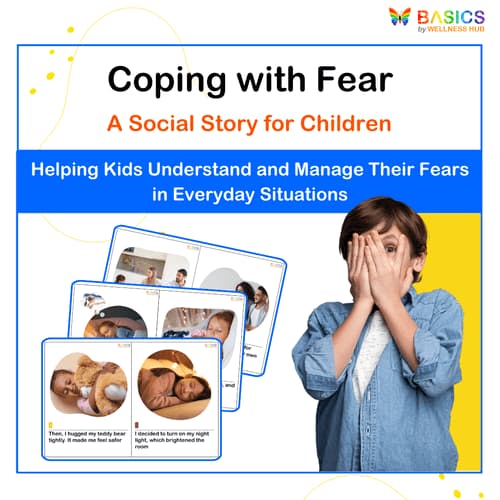
Coping with Fear: A Social Story for Children
₹ 80.00
₹ 160.00
50% off
4.7 (52 ratings)
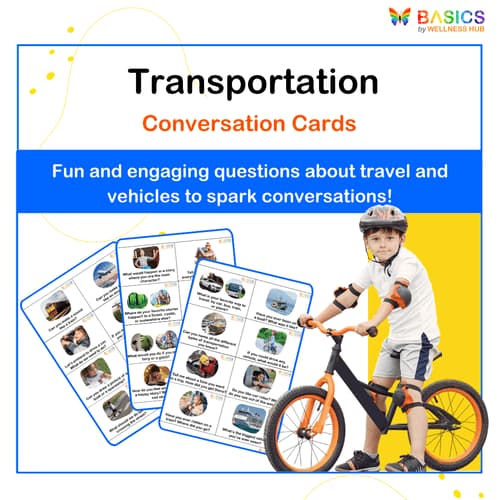
Conversation Cards - Transportation: Engage Kids with Fun Travel-Themed Questions
₹ 80.00
₹ 160.00
50% off
4.6 (48 ratings)
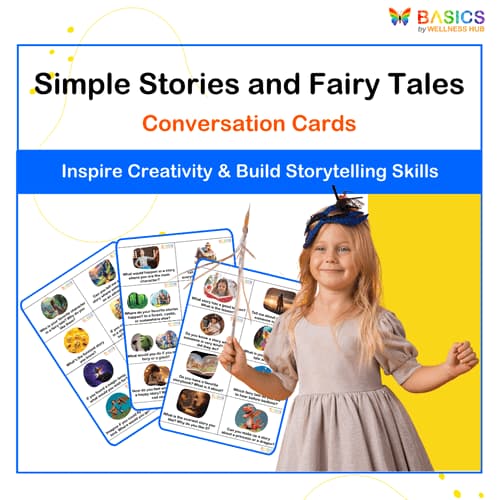
Conversation Cards - Simple Stories and Fairy Tales: Encouraging Imaginative Thinking and Storytelling
₹ 80.00
₹ 160.00
50% off
4.8 (44 ratings)
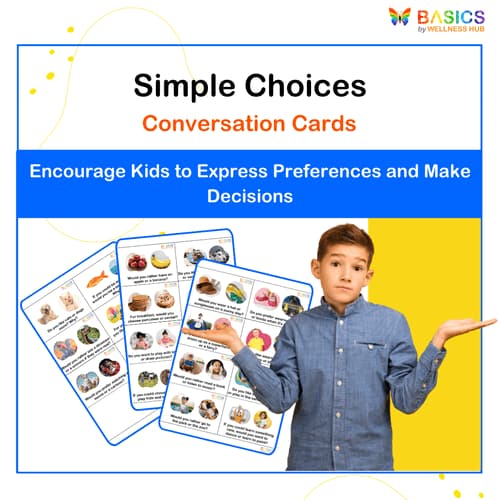
Conversation Cards - Simple Choices: Easy and Fun Decisions for Kids Encourage Thoughtful Choices with Fun and Relatable Scenarios
₹ 80.00
₹ 160.00
50% off
4.8 (56 ratings)
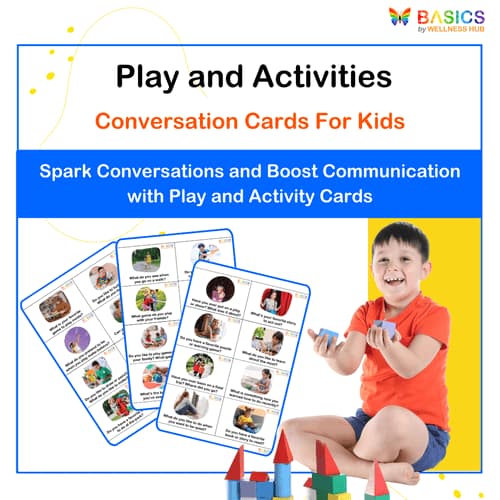
Conversation Cards - Play and Activities
₹ 80.00
₹ 160.00
50% off
4.7 (52 ratings)
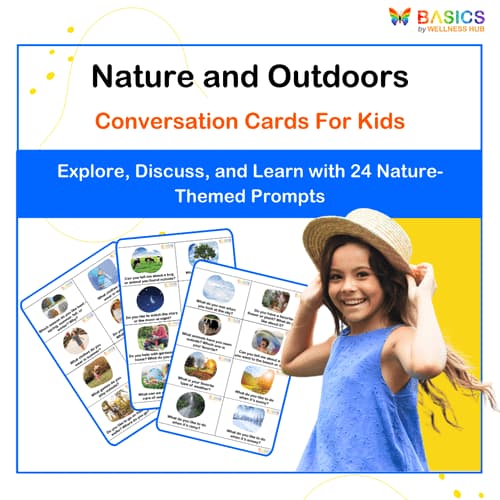
Conversation Cards - Nature and Outdoors: Questions for Outdoor Exploration
₹ 80.00
₹ 160.00
50% off
4.6 (48 ratings)
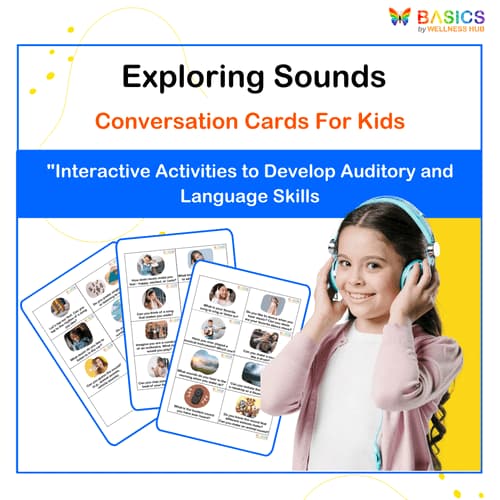
Exploring Sounds: Conversation Cards for Kids
₹ 80.00
₹ 160.00
50% off
4.9 (44 ratings)
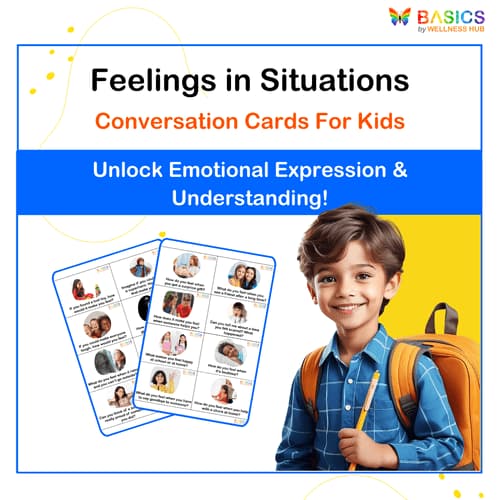
Feelings in Situations: Conversation Cards for Kids
₹ 80.00
₹ 160.00
50% off
4.8 (58 ratings)
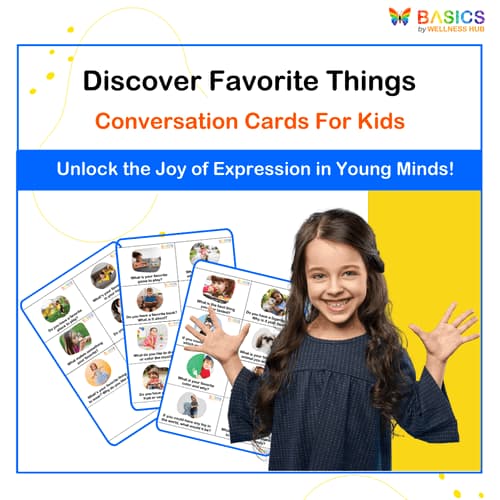
Favorite Things: Conversation Cards for Kids Explore Interests and Favorites!
₹ 80.00
₹ 160.00
50% off
4.7 (54 ratings)
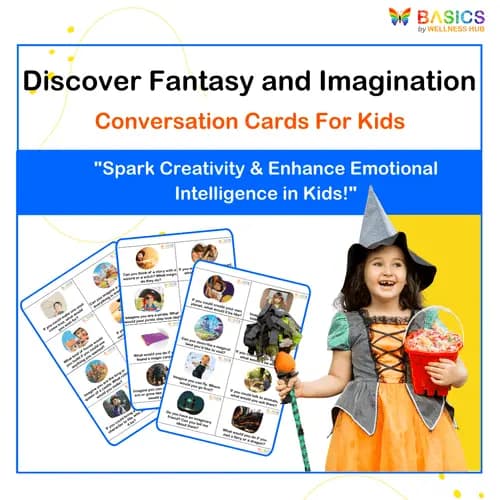
Fantasy and Imagination: Conversation Cards for Kids Unleash Creativity and Dream Big!
₹ 80.00
₹ 160.00
50% off
4.6 (50 ratings)
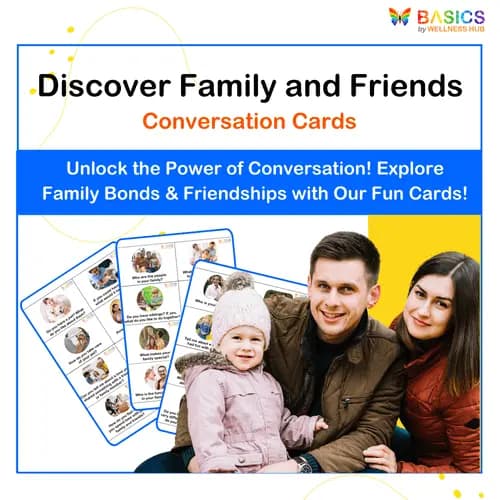
Family and Friends: Conversation Cards for Kids Explore Bonds, Traditions, and Fun!
₹ 80.00
₹ 160.00
50% off
4.9 (46 ratings)
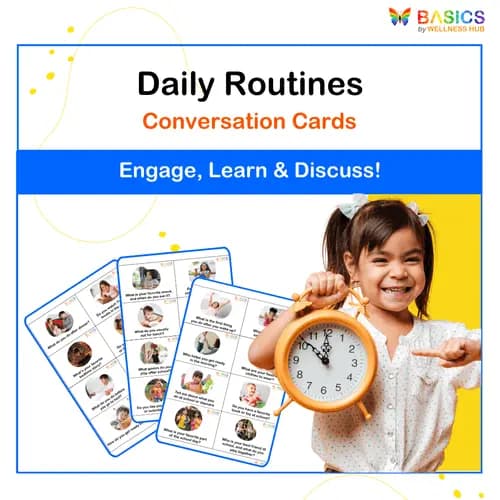
Daily Routines: Conversation Cards for Kids Explore Everyday Activities with Fun Questions
₹ 80.00
₹ 160.00
50% off
4.8 (42 ratings)
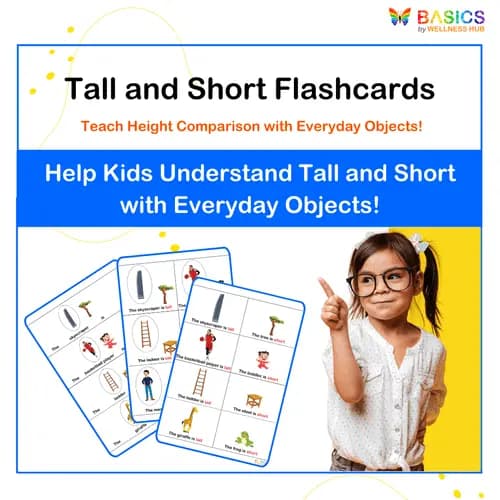
Tall and Short Flashcards: Teach Height Comparison with Everyday Objects
₹ 80.00
₹ 160.00
50% off
4.7 (56 ratings)
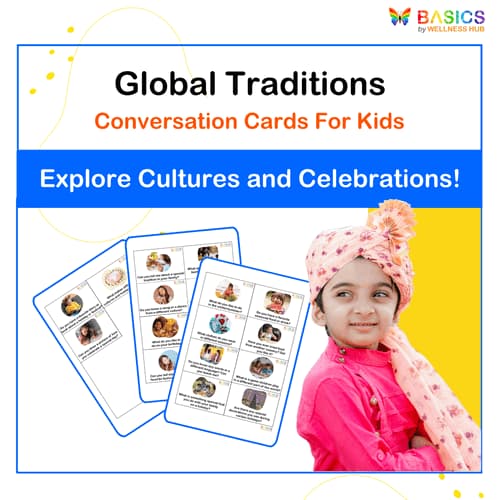
Global Traditions: Conversation Cards for Kids Explore Cultures and Holidays Through Fun Questions
₹ 80.00
₹ 160.00
50% off
4.6 (52 ratings)
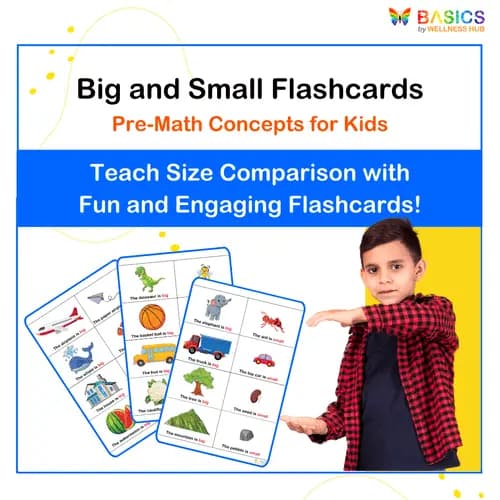
Big and Small Flashcards: Pre-Math Concepts for Kids
₹ 80.00
₹ 160.00
50% off
4.9 (48 ratings)
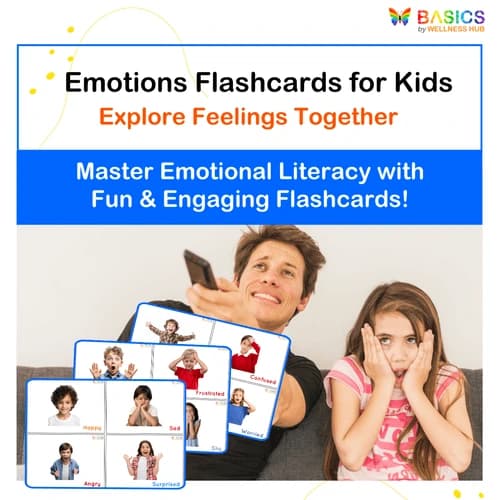
Emotions Flashcards for Kids: Free Printable PDF
FREE
₹160
100% off
4.8 (44 ratings)
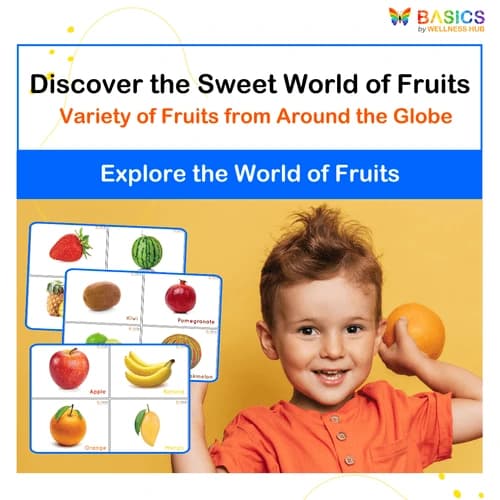
Fruits Flashcards for Kids: Free Printable PDF
FREE
₹160
100% off
4.7 (58 ratings)
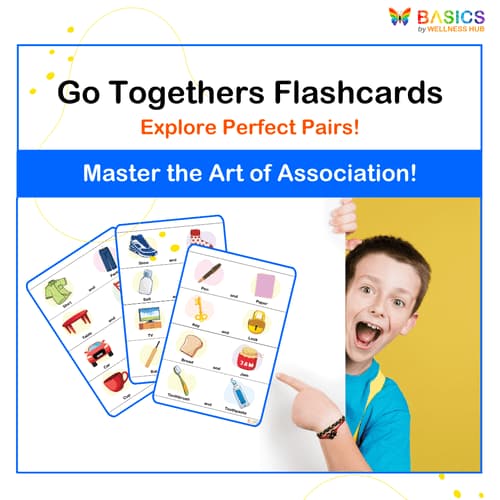
Go Togethers Flashcards: Perfect Pairs for Learning
₹ 80.00
₹ 160.00
50% off
4.6 (54 ratings)

Indian Cuisine Flashcards for Kids: Free Printable PDF
₹ 80.00
₹ 160.00
50% off
4.9 (50 ratings)
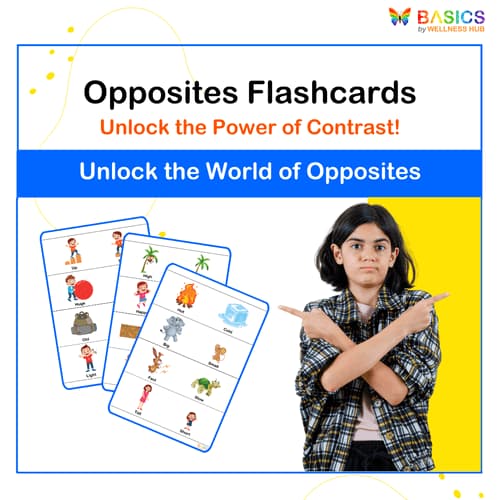
Opposites Flashcards: Learn & Discover Duality
₹ 80.00
₹ 160.00
50% off
4.8 (46 ratings)
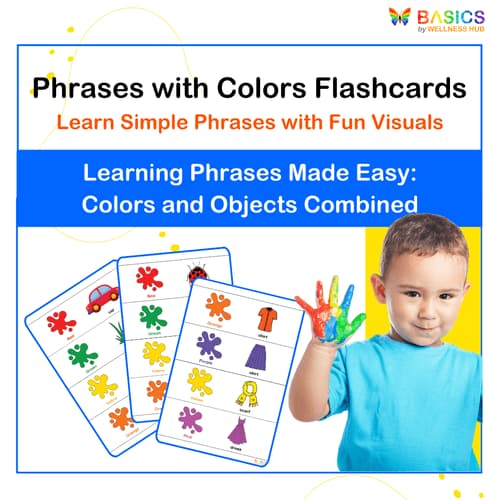
Phrases with Colors Flashcards: Learn Phrases Using Colors and Objects
₹ 200.00
₹ 400.00
50% off
4.7 (42 ratings)
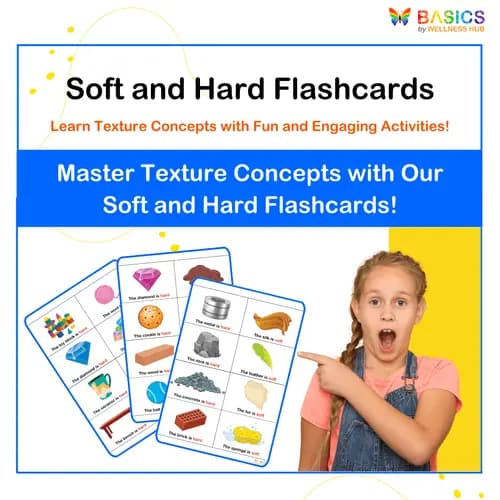
Soft and Hard Flashcards: Learn Texture Concepts with Everyday Objects
₹ 80.00
₹ 160.00
50% off
4.6 (58 ratings)
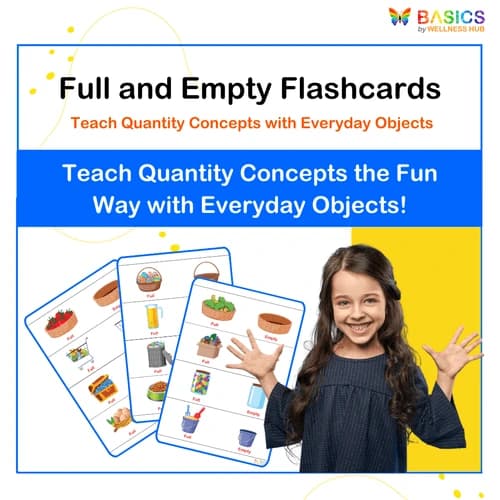
Full and Empty Flashcards: Teach Quantity Concepts with Everyday Objects
₹ 80.00
₹ 160.00
50% off
4.9 (54 ratings)
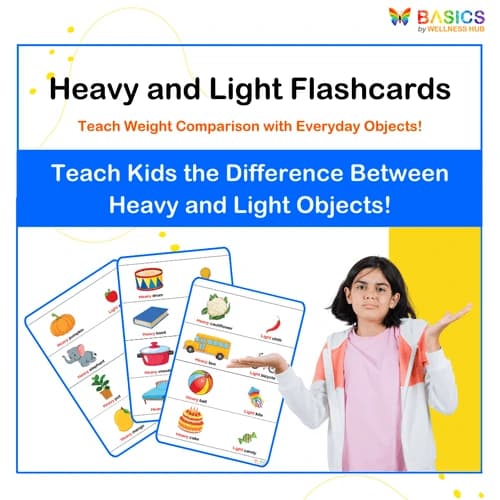
Heavy and Light Flashcards: Teach Weight Comparison with Everyday Objects
₹ 80.00
₹ 160.00
50% off
4.8 (50 ratings)
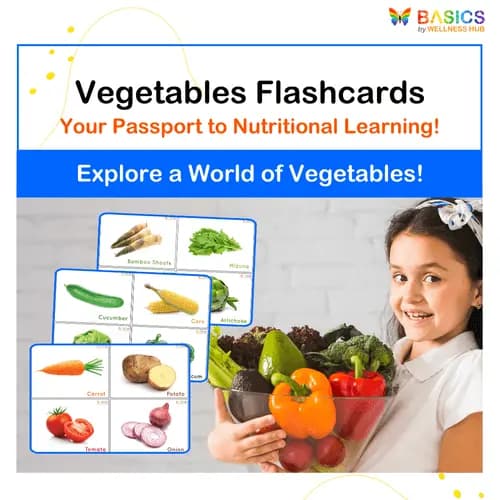
Vegetables Flashcards for Kids: Free Printable PDF
FREE
₹160
100% off
4.7 (46 ratings)
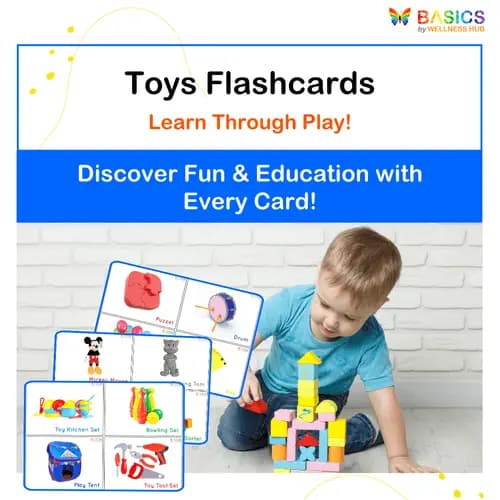
Toys Flashcards for Kids: Free Printable PDF
FREE
₹160
100% off
4.6 (42 ratings)
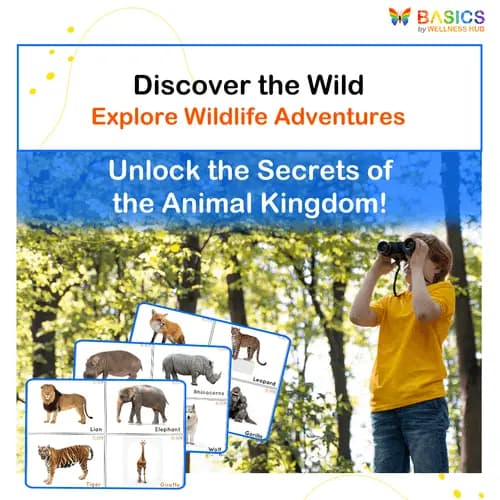
Wild Animals Flashcards for Kids: Free Printable PDF
FREE
₹160
100% off
4.6 (45 ratings)
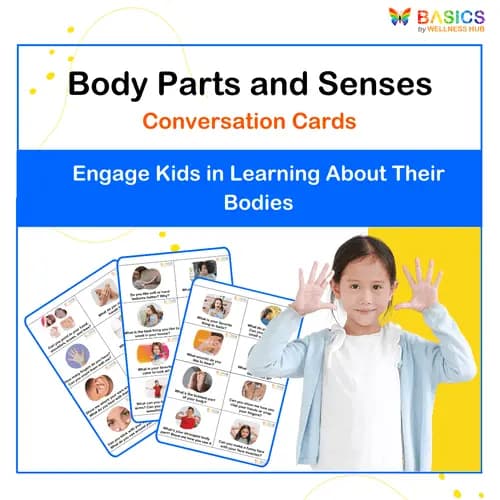
Conversation Cards - Body Parts and Senses: Engage Kids in Learning About Their Bodies
₹ 80.00
₹ 160.00
50% off
4.8 (36 ratings)
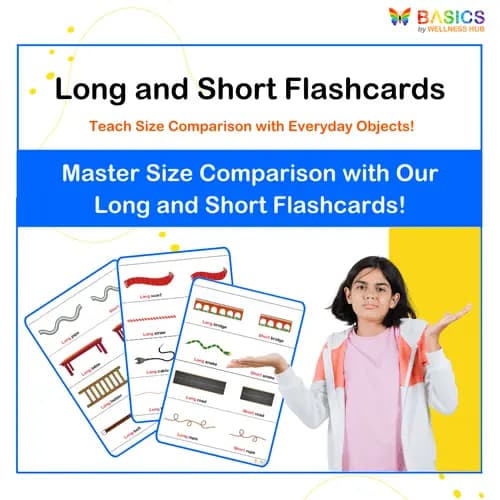
Long and Short Flashcards: Teach Size Comparison with Everyday Objects
₹ 80.00
₹ 160.00
50% off
4.9 (47 ratings)
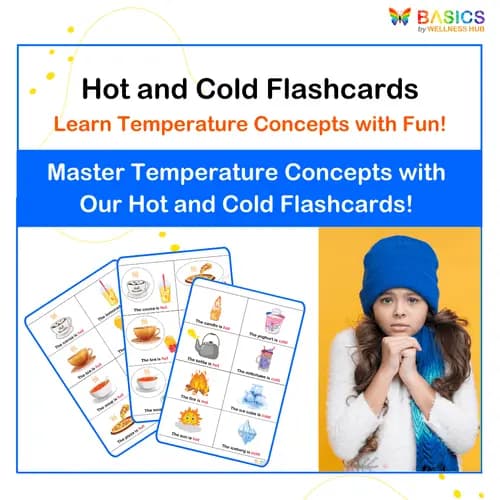
Hot and Cold Flashcards: Learn Temperature Concepts with Objects
₹ 80.00
₹ 160.00
50% off
4.8 (44 ratings)
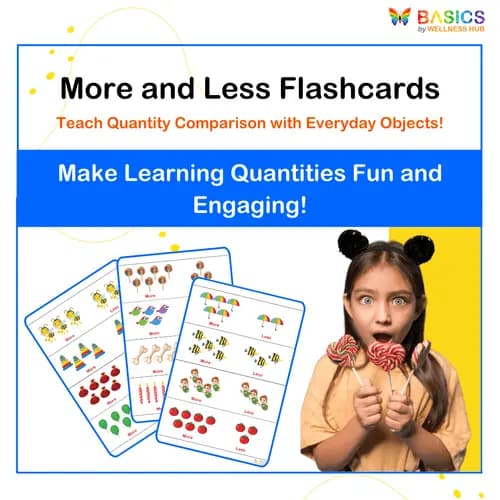
More and Less Flashcards: Teach Quantity Comparison with Everyday Objects
₹ 80.00
₹ 160.00
50% off
4.7 (56 ratings)
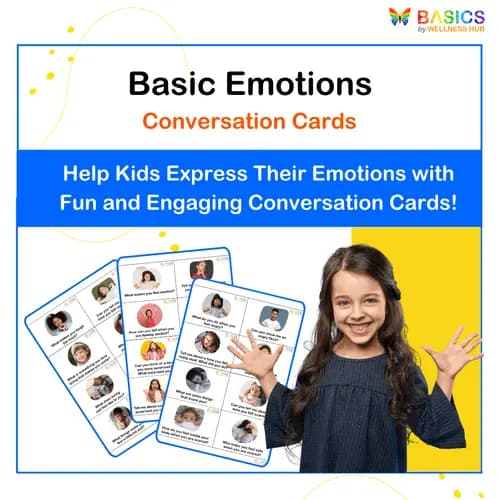
Conversation Cards - Basic Emotions: Questions to Help Kids Express Feelings
₹ 80.00
₹ 160.00
50% off
4.6 (52 ratings)
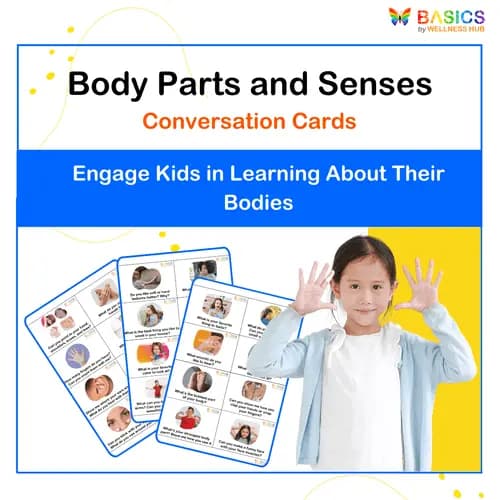
Body Parts Flashcards for Kids: Free Learning PDF
FREE
₹160
100% off
4.9 (48 ratings)
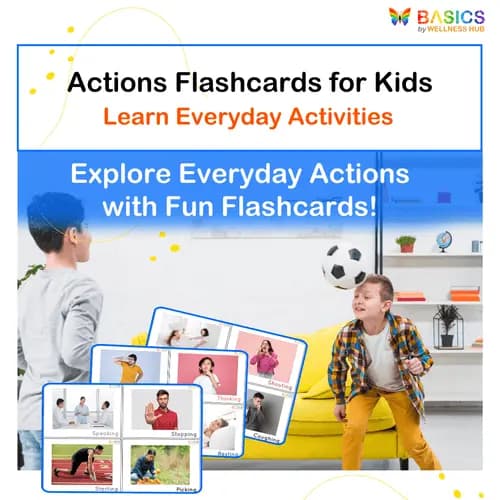
Action Flashcards for Kids: Learn Everyday Activities
₹ 80.00
₹ 160.00
50% off
4.8 (44 ratings)
Real Parent Success Stories – How Early Childhood Development Resources Help Kids Thrive
Our resources have positively impacted families and therapists, helping children make meaningful progress in speech and language development. Here’s what some of our users have shared:
The sorting toys have been a game changer for my daughter. She’s building her coordination, and she loves playing with them. It’s great to see her improve every day!
Sarah, Parent
These testimonials reflect how our resources make speech and language learning accessible and effective, empowering children and giving parents the confidence to support their growth.
Detailed Description
Introduction to Early Childhood Development Resources
Early childhood development is the foundation of a child’s future learning, behavior, and health. During these formative years, children develop essential skills in areas like motor skills, language, cognition, social-emotional abilities, and self-regulation. Our early childhood development resources are designed to support these critical areas, providing parents, educators, and therapists with tools to nurture each child’s unique abilities. From building basic motor skills to fostering social interactions, these resources create a strong base for well-rounded growth, making early learning engaging, practical, and fun.
How Our Resources Aid in Early Childhood Development
Our early childhood development resources are crafted to promote comprehensive growth across cognitive, motor, social, and emotional skills. Activities like sensory play and fine motor tasks support physical and cognitive development, while social stories and emotion flashcards encourage emotional and social awareness. These tools are designed to be interactive, giving children hands-on learning experiences that stimulate curiosity and reinforce key developmental milestones.
Types of Early Childhood Development Resources We Offer
Motor Skills and Coordination Activities: Motor skills activities include tasks that build both fine and gross motor abilities. From lacing and sorting games to balance exercises, these resources support physical development and coordination, helping children develop the control needed for tasks like writing, dressing, and sports.
Sensory and Cognitive Play Resources: Sensory play activities encourage children to explore textures, sounds, and visuals, promoting sensory awareness and cognitive growth. These activities engage the senses and stimulate the brain, enhancing attention, memory, and problem-solving skills.
Social and Emotional Development Tools: Social stories and emotion flashcards introduce children to social situations and feelings, helping them understand emotional responses and develop empathy. These resources encourage children to recognize and manage emotions, supporting their ability to interact positively with others.
Early Learning and Foundational Skills Activities: Our foundational skills resources cover basic concepts like shapes, colors, numbers, and letters. Through hands-on learning, children practice recognizing and naming these elements, setting the groundwork for early literacy and numeracy skills.
Who Can Use These Resources?
Our early childhood development resources are versatile and valuable for a wide range of users:
Parents: Use these resources at home to create a learning-rich environment that supports your child’s growth across various developmental areas.
Teachers: Integrate these resources into preschool or early elementary classrooms to enhance early learning and provide structured development activities.
Therapists: Apply these tools in therapy sessions to support children with developmental delays, providing focused, goal-oriented exercises.
These resources are designed to be easy to use and adaptable, allowing anyone working with young children to foster growth and build essential skills in a positive, engaging way.
Benefits of Early Childhood Development Activities at Home
Practicing early childhood development activities at home offers children the opportunity to grow in a supportive, familiar environment. These resources allow parents to introduce basic skills, such as motor coordination, social interaction, and sensory awareness, as part of daily routines. For children with specific developmental needs, structured activities provide repeated practice that supports learning and retention. By incorporating early learning activities into daily life, parents can help children gain confidence and develop a strong foundation for future educational success.
Tips for Using Early Childhood Development Resources Effectively
Utilizing our early childhood development resources effectively can enhance your child’s growth and learning experience. Here are some practical tips:
Start with Familiar Activities: Begin with simple, familiar activities that build comfort and confidence, especially when introducing new concepts like shapes, colors, or counting. This approach reduces frustration and keeps children engaged.
Make Activities Part of Daily Routines: Incorporate development activities into daily routines, such as sorting shapes during playtime or practicing counting at mealtime. Integrating these skills into everyday tasks makes learning natural and consistent.
Encourage Sensory Exploration: Sensory play is crucial at this stage. Let children engage with activities that include different textures, sounds, and visuals, which stimulate brain development and foster curiosity.
Practice Repetition and Consistency: Repetition strengthens learning, especially in early childhood. Regular practice of skills like fine motor tasks or number recognition reinforces understanding and builds memory.
Celebrate Small Wins: Celebrate each achievement to encourage positive reinforcement and confidence. Recognizing small milestones, such as correctly naming colors or completing a motor task, motivates children to keep learning.
Real-Life Examples of Speech and Language Development with Our Resources
Our early childhood development resources offer practical, hands-on ways for children to practice essential skills. Here are a few examples:
Building Motor Skills with Sorting and Stacking Activities: A parent might use Sorting and Stacking Toys to help their child develop fine motor skills and hand-eye coordination. By picking up and placing items in specific spots, children practice control and precision, essential for later tasks like writing and drawing.
Fostering Sensory Awareness with Sensory Play Cards: A therapist might use Sensory Play Cards to encourage children to explore various textures and sounds. This hands-on sensory experience supports cognitive development, helping children process and understand different sensory inputs.
Learning Social Skills through Social Stories: A teacher might read Social Stories in the classroom to help children understand concepts like sharing and taking turns. By discussing these scenarios, children learn appropriate social behaviors, improving their interactions with peers.
Introducing Colors and Shapes through Flashcards: Using Color and Shape Flashcards, parents can introduce their child to basic concepts. Practicing with these cards builds recognition and understanding of these foundational elements, which supports early math and literacy skills.
These examples demonstrate how our resources support various aspects of development, from motor skills and sensory exploration to social interaction and cognitive growth.
FAQs
Q1: How do I start using these resources with my child?
A1: Begin with simple, engaging activities, like sensory play or color recognition flashcards. Introduce one activity at a time and keep sessions short to maintain interest.
Q2: Which resources are best for building motor skills?
A2: Our Motor Skills Activities, like sorting and lacing games, are excellent for developing hand-eye coordination and control, which are essential for tasks like writing and dressing.
Q3: How often should I use these activities?
A3: Consistency is key in early childhood development. Short, daily sessions—about 10–15 minutes—are effective for reinforcing skills without overwhelming young children.
Q4: Are these resources suitable for children with developmental delays?
A4: Yes, our resources are designed to support a range of developmental levels. They are particularly effective for children who need additional support, providing structured and engaging activities that build confidence and growth.
Related Topics and Further Learning for Parents
For parents interested in supporting holistic early childhood development, the BASICS app offers additional resources and courses to guide you:
Building Motor Skills and Coordination: A course that covers activities and techniques for enhancing fine and gross motor skills in young children.
Sensory Play and Cognitive Growth: Resources focused on sensory exploration and cognitive stimulation, helping children engage with the world around them through interactive play.
Social and Emotional Development in Early Childhood: Tools and guidance on supporting young children’s social and emotional growth, including empathy, sharing, and self-regulation.
Introduction to Early Learning Concepts: A course covering foundational skills such as color, shape, and number recognition, laying the groundwork for future literacy and math learning.
These additional resources offer parents comprehensive support for their child’s early development, ensuring well-rounded growth across motor, social, cognitive, and emotional domains.